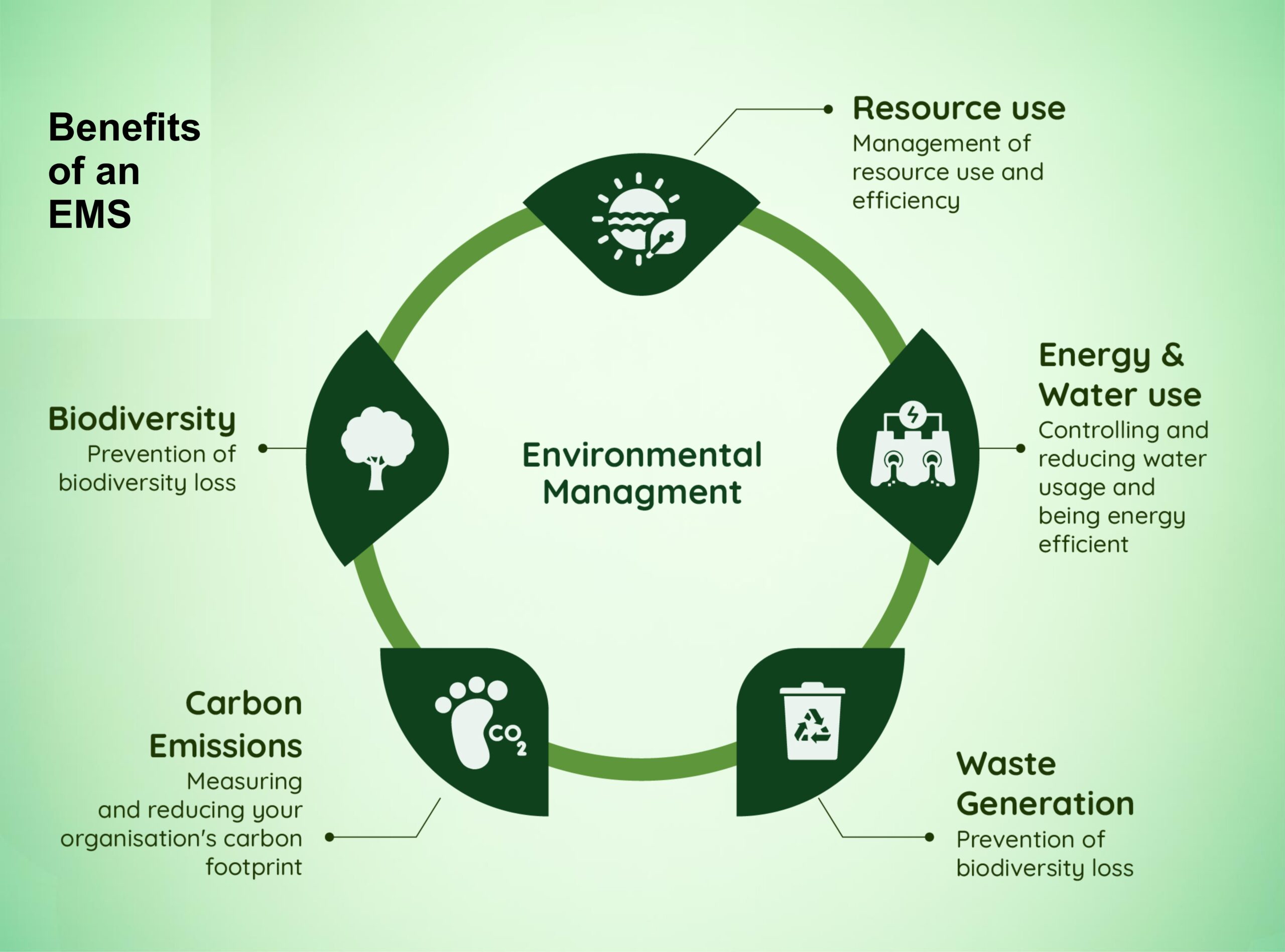
Quick Environment Management System (QEMS) for SMEs in Sri Lanka

What if saving the planet could save you money? In today’s competitive market, going green is not just good for the planet – it is good for your company’s bottom line. While large corporations invest millions in environmental certifications, small and medium enterprises often struggle with the complexity and cost of implementing management systems like ISO 14001. But what if there was a simpler, cost-effective way to reduce your environmental impact while cutting operational costs and attracting more customers? That is where Environmental Management Systems come in, offering a practical path to sustainability that works for businesses of any size.
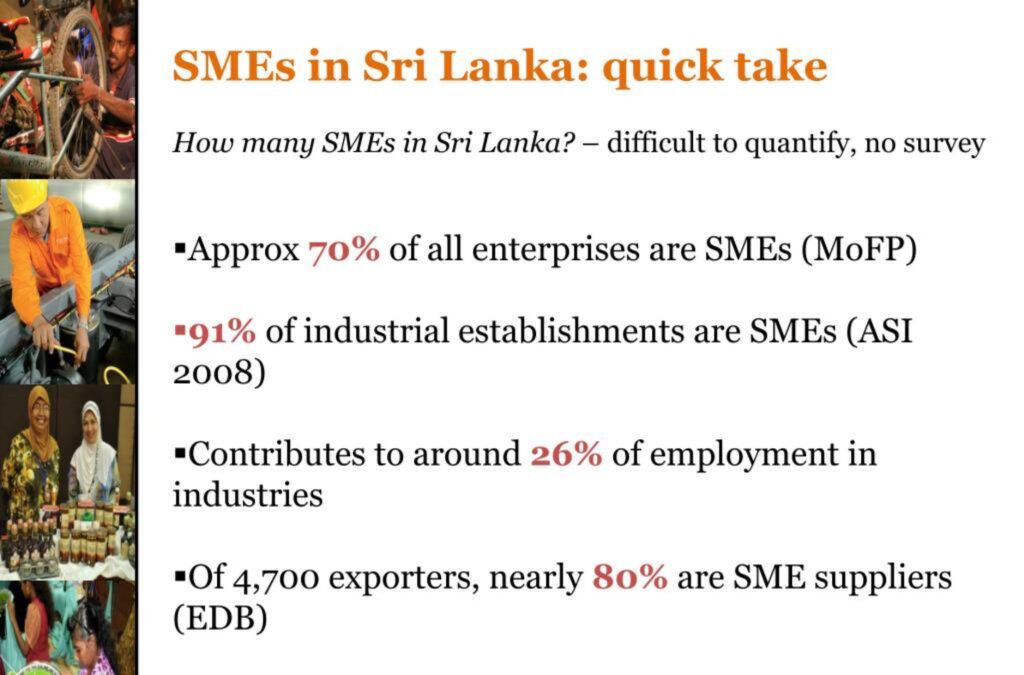
The Benefits of an Environmental Management System (EMS)
Identify Areas of Environmental Risks: EMS certifications such as ISO 14001 ensures businesses integrate a structured approach to identifying areas of risks, waste, and areas of improvement, enabling them to reduce resource consumption, lower emissions, and minimise waste. These measures, in addition to reducing negative impacts on the planet, also enhance their corporate image as environmentally conscious entities.
Cost Savings and Efficiency: By encouraging practices that reduce waste and optimise the use of resources such as fuel consumption and water, an EMS leads to streamlining of operations resulting in lower utility costs, fewer materials used, and a reduction in waste disposal expenses. Additionally, an EMS fosters compliance with environmental regulations, which can help businesses avoid costly fines or penalties for non-compliance.
Improved Market Competitiveness: With consumers and investors increasingly prioritising sustainability, an established EMS demonstrates a company’s commitment to actionable progress to environmental responsibility, which can attract eco-conscious customers and investors. This can open doors to new business opportunities and strengthen the businesses position in the market.
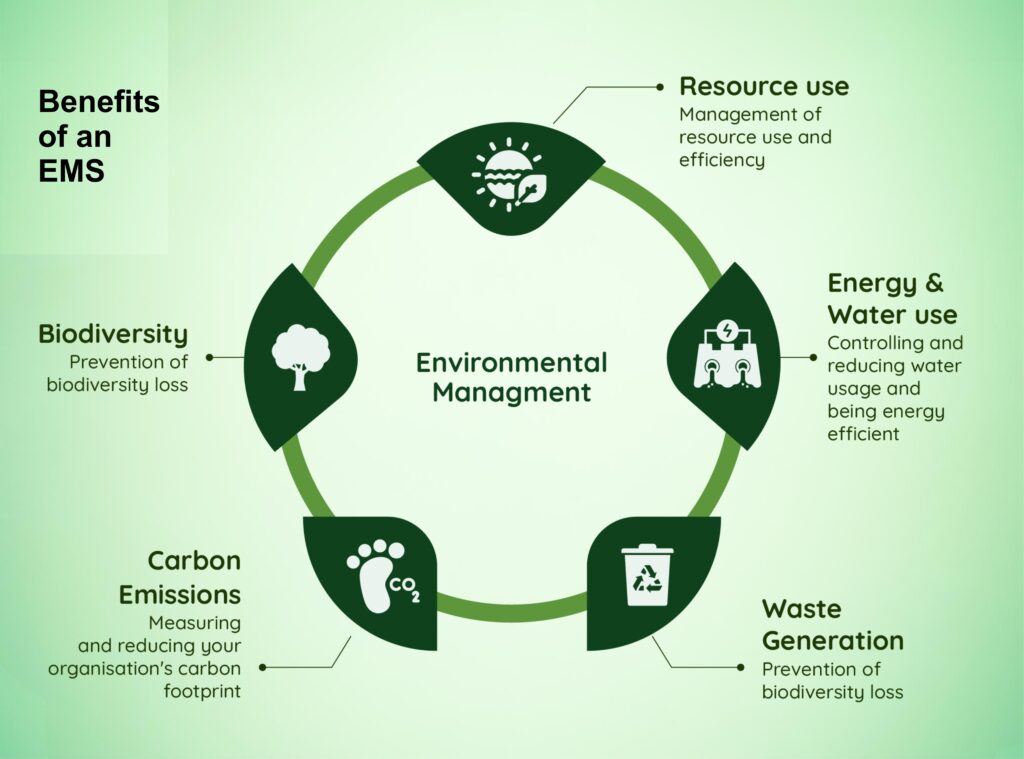
The Challenges of ISO 14001 Adoption
High Initial Costs and Resource Demands: The initial associated costs can be a significant barrier, particularly for small and medium-sized enterprises (SMEs). Developing and integrating an EMS can require significant time, expertise, and effort. Third party certification costs can also be significant, which many businesses struggle to justify, especially when the return on investment in an EMS is not tangible.
Ongoing Monitoring and Maintenance: The requirement for continuous monitoring, evaluation, and improvement may be demanding in terms of both time and resources. For many SMEs, this additional workload if often seen as a hindrance rather than a value adding set of activities.
Why the Low Uptake of ISO 14001 Certification?
Despite the clear potential benefits of ISO 14001, the challenges associated with its implementation contribute to its relatively low uptake, especially among SMEs. Many businesses hesitate to adopt the standard due to the initial costs, complexity, and time required to establish and maintain an effective EMS. While ISO 14001 offers significant environmental, financial, and competitive advantages, the challenges associated with its adoption—particularly for smaller businesses—remain substantial.
The Solution
Keeping this in mind, QEMS has been developed at STENUM Asia to support SMEs to align with some of the key aspects of the ISO 14001standard, improving operational performance while driving real change.
QEMS is a simplified, quicker yet effective environmental management system, tailored for SMEs. Considered as a simpler and more manageable first step towards ISO 14001 as certain aspects or requirements of ISO 14001 are in focus. QEMS focuses on key aspects of an EMS which deliver value to the SME, while also helping reduce the environmental impact of the SME.
The implementation of QEMS for SMEs is a structured 8-step process that can be completed in 4 days. The journey begins by understanding the business context of the SME and defining the scope of the environmental management system followed by conducting an eco-mapping assessment to identify hotspots; and develop a tailored Environmental Action Plan. SMEs will formulate an environmental policy with our guidance and conduct the first management review to evaluate progress and adjust accordingly. An internal audit shall be carried out to ensure compliance, followed by a second management review to assess the readiness for certification.
Throughout the process, SMEs are guided with consultations and materials, ultimately setting the foundation for long-term sustainability and potential ISO 14001 certification.
QEMS is currently being implemented in four SMEs in Sri Lanka and have already been established in few others in India, where they have already delivered significant benefits.
The path to environmental responsibility does not have to be complex or costly. QEMS offers SMEs a practical first step towards sustainability, delivering tangible benefits from reduced utility bills to enhanced market reputation. With success stories showing ROI in less than a year and operational cost reductions of up to 30%, the question isn’t whether to implement an environmental management system – it’s why wait? Take the first step today towards a more sustainable and profitable future for your business.

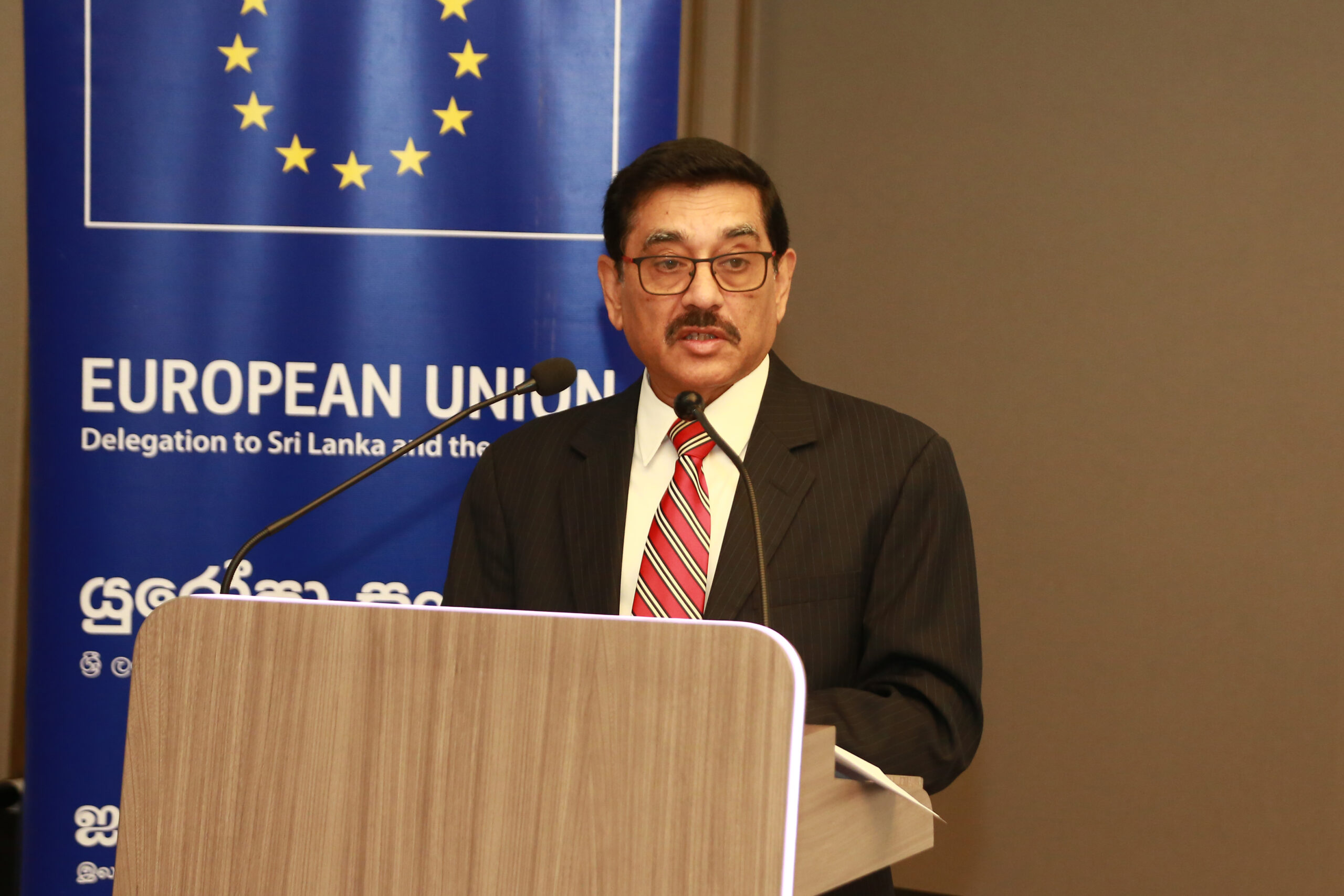
Strategic Briefing on the Delivery of Green Financial Services to Businesses

The Strategic Briefing on the Delivery of Green Financial Services to Businesses brought together experts and stakeholders to discuss sustainable finance in Sri Lanka. The event underscored the urgency of aligning financial systems with environmental goals to address the global climate crisis and build a resilient economy. Key discussions highlighted the role of financial institutions in bridging funding gaps and promoting green economic growth.
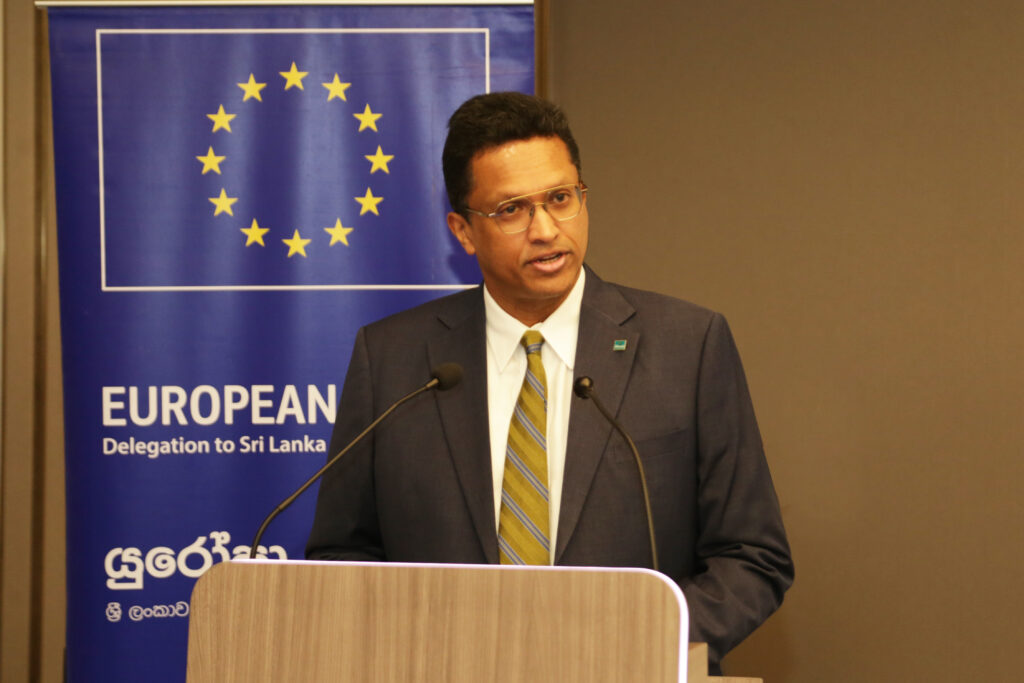
Mr. Dilhan C. Fernando, Chairman of Biodiversity Sri Lanka (BSL), emphasised the severe climate risks outlined during COP29, including the slim chances of limiting global warming to 1.5°C. He called for immediate financial investments in developing nations like Sri Lanka to mitigate climate impacts. BSL’s collaboration with the EU-funded Switch Asia project was commended as a benchmark for advancing circular economy solutions. The involvement of the Central Bank Governor was highlighted as critical for fostering a green financial ecosystem to support the nation’s green transition.
Dr. Johann H. Hesse, Head of Cooperation of the EU Delegation to Sri Lanka and the Maldives, shared insights into the EU’s Green Deal, a policy package aimed at climate neutrality by 2050. He celebrated milestones such as the launch of Sri Lanka’s first green bond and stressed addressing barriers like information gaps and limited private investment mechanisms. He also highlighted ongoing EU support for circular economy initiatives, including plastics management under the Switch Asia Plastics Project, and reiterated the importance of partnerships to strengthen Sri Lanka’s financial sector.
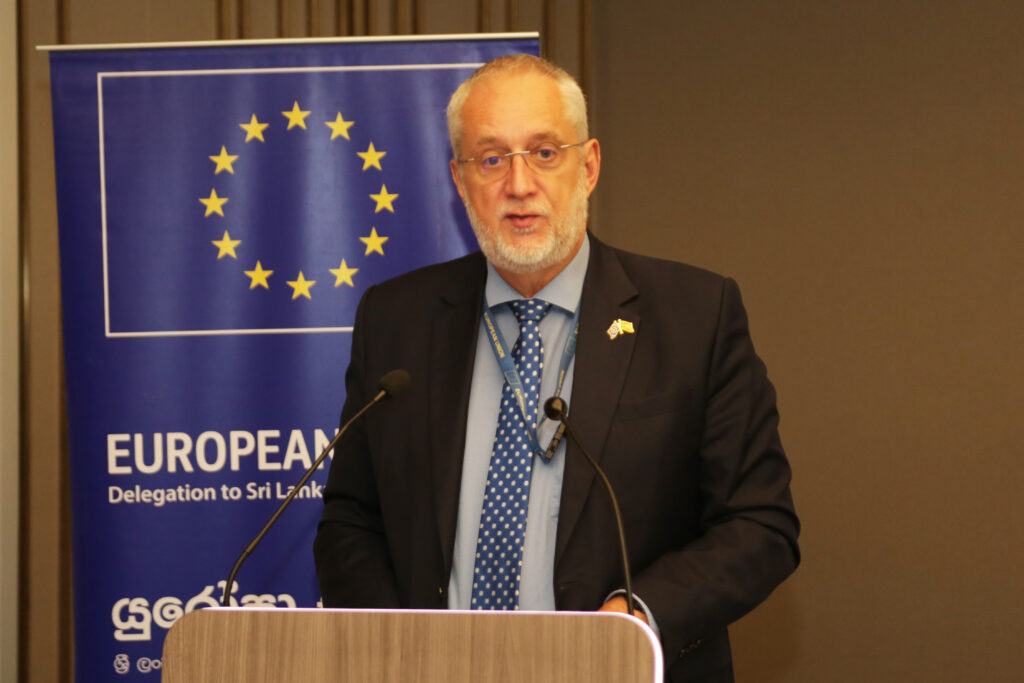
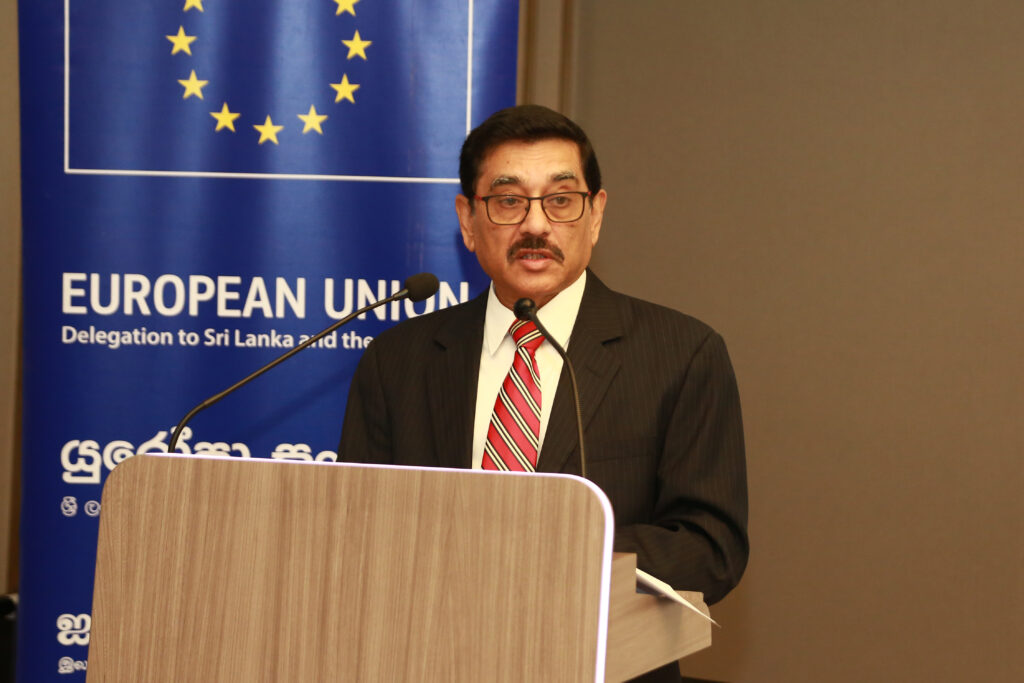
Delivering the keynote address, Dr. P. Nandalal Weerasinghe, Governor of the Central Bank of Sri Lanka, focused on the global significance of addressing climate risks. He pointed out the inadequacy of taxpayer-funded initiatives and emphasised the need for innovative financial instruments to attract private sector investments. He outlined the Central Bank’s progress in sustainable finance, such as the 2019 roadmap and the 2022 green finance taxonomy. Despite challenges posed by the pandemic, the Central Bank enhanced sector capacity through training and international collaborations. A new roadmap is being developed, integrating social and environmental considerations to broaden sustainable finance frameworks.
Dr. Weerasinghe also stressed the importance of adaptation finance, alongside mitigation efforts, to address growing climate risks. He called for innovative financial products and increased collaboration to close gaps in Sri Lanka’s sustainable finance progress. The Governor reaffirmed the Central Bank’s commitment to fostering sustainability and enabling a cultural shift toward green development.
The event included a presentation by Mr. Errol Abeyratne, BSL Green Finance Specialist, on the EU Switch Asia Plastics project, which promotes a circular economy through green financing and clean tech solutions. Key achievements included feasibility studies, outreach to financial institutions, and capacity-building programmes for SMEs. Future efforts will focus on increasing institutional engagement and leveraging philanthropic investments for climate risk financing.
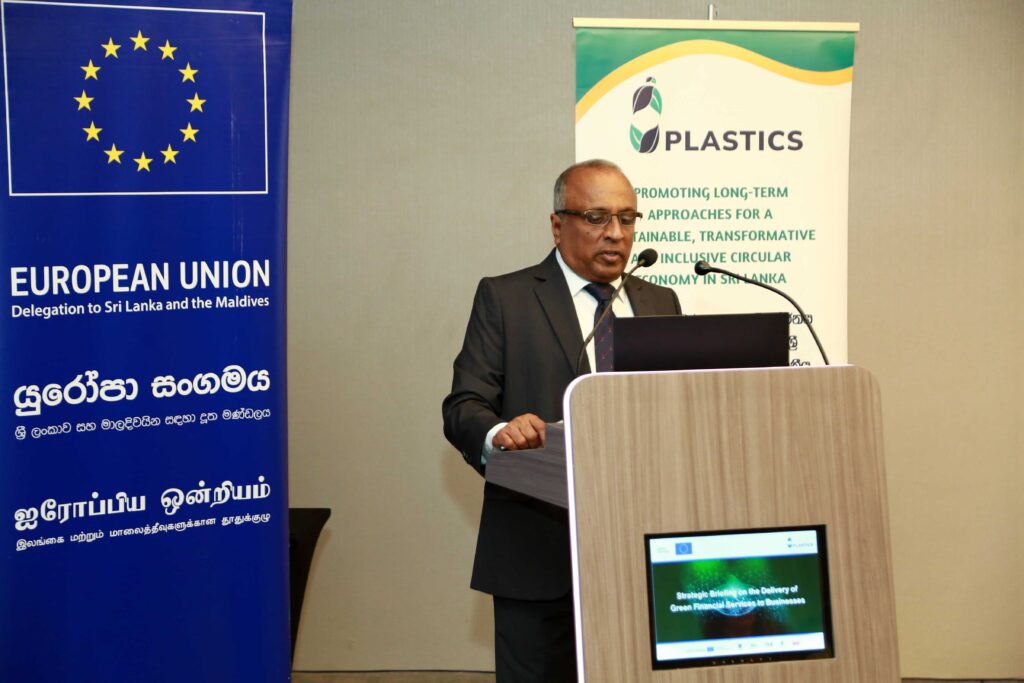
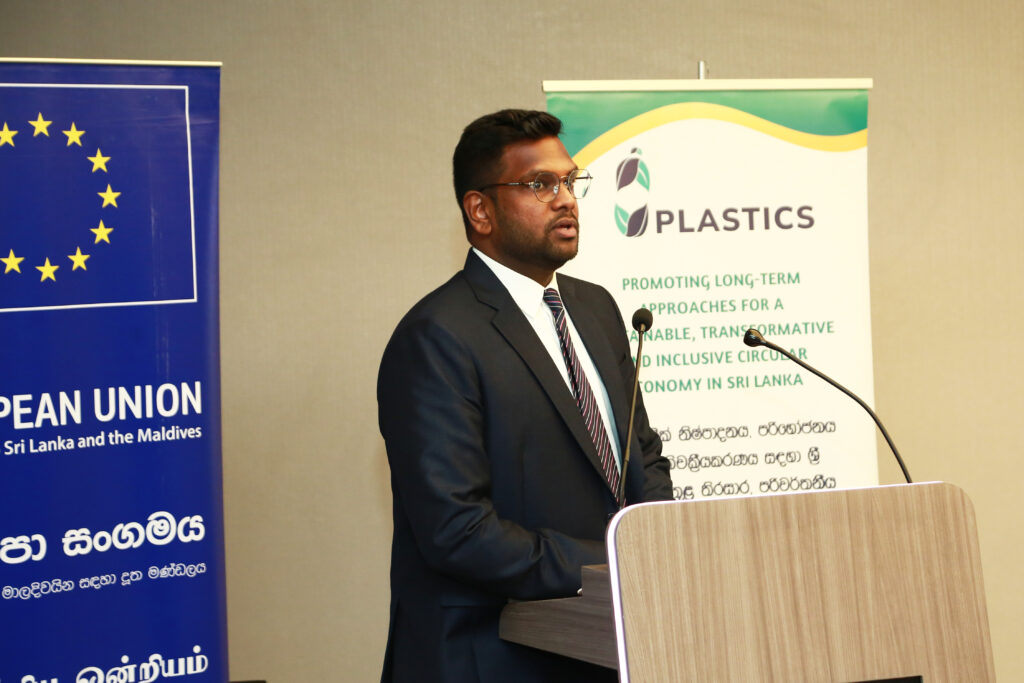
Mr. Anushka Wijesinha, Co-Founder of the Center for a Smart Future, presented findings from the Green Finance Maturity Assessment, which identified gaps in operationalising green finance, such as limited internal policies and inadequate risk assessment mechanisms. The study emphasised integrating environmental risk assessments into financial processes to unlock green growth opportunities.
During the open discussion, stakeholders addressed barriers like high costs of green finance, the potential of green bonds, and the role of fiscal and regulatory incentives. Dr. Weerasinghe highlighted the need for institutional coordination to align national policies with international climate goals and foster innovative financing mechanisms.
The briefing concluded with a call for multi-stakeholder collaboration to overcome barriers, advance green finance, and accelerate Sri Lanka’s transition to a sustainable economy. By fostering dialogue, stakeholders can drive ecosystem restoration, green economic growth, and resilience in the face of climate challenges.

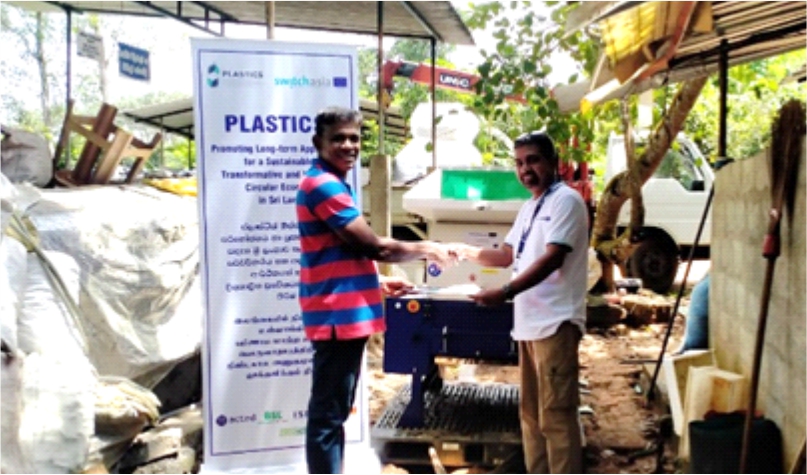
Boosting SMEs through Strategic Asset Support

Boosting SMEs through Strategic Asset Support
Through a dedicated effort to transform the plastics value chain, the PLASTICS project has set a precedent by equipping Small and Medium Enterprises (SMEs) with critical assets to foster innovation and operational excellence. These assets are not merely tools; they are catalysts for sustainable growth and industry leadership.
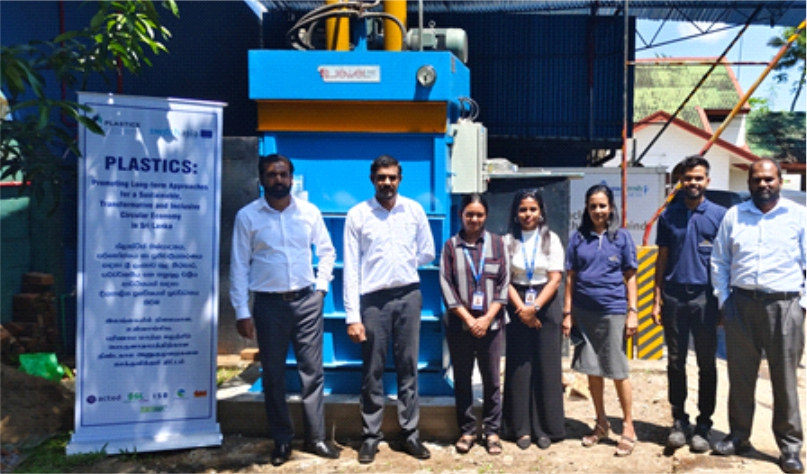

Collaborative Investment
SMEs participating in the project demonstrate their commitment by contributing 50% of the financial costs towards these assets. This shared investment not only instills a sense of ownership but also solidifies their long-term engagement in building a more sustainable and profitable future.
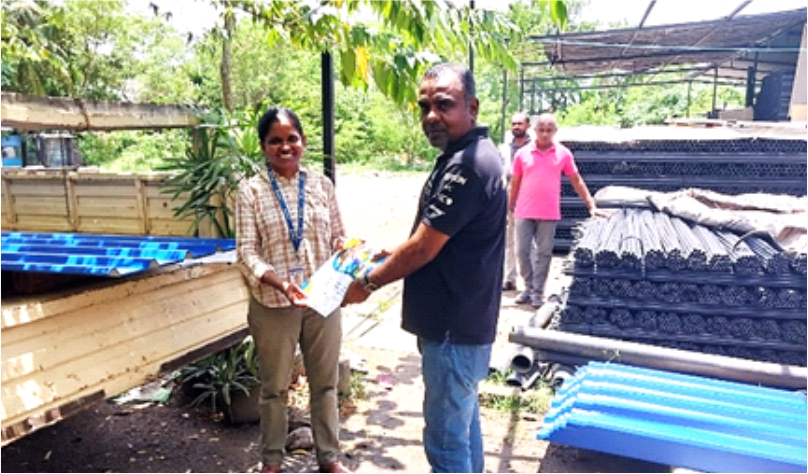
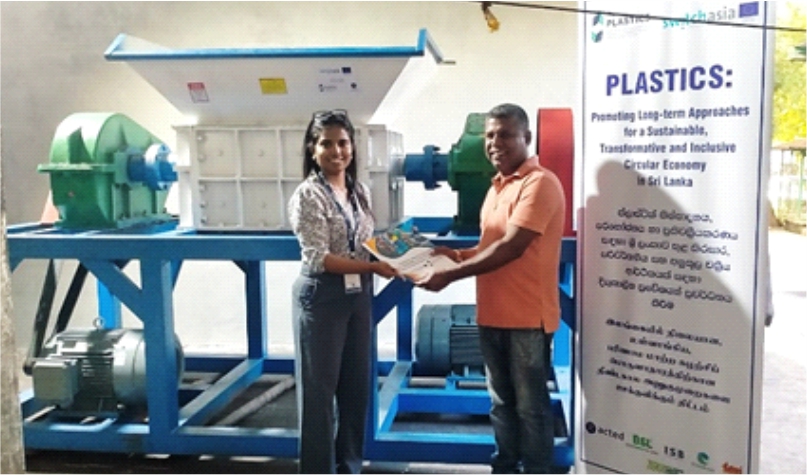
Tailored Solutions
The assets provided are not one-size-fits-all solutions but are carefully tailored to meet the unique needs of each business. This customiszation is based on:
- Expert Assessments by Enterprise Capacity Assessment Tool (ECAT):Evaluate the capacity, strengths, and weaknesses of enterprises.
- Resource Efficient and Cleaner Production (RECP) Plans: Ensuring that resources are utilis
zed efficiently, minimiszing waste and environmental footprint. - Individual Business Strategies: Aligning assets with the SMEs’ growth goals and market opportunities.
By aligning these insights with targeted asset allocation, the project ensures that businesses are equipped to address challenges and seize new opportunities effectively.
Innovation and Sustainability
The impact of these assets extends far beyond immediate operational improvements. They enable SMEs to:
- Expand Capabilities: Whether through enhanced production technologies, innovative recycling mechanisms, or resource-efficient processing, the assets empower businesses to take on larger markets.
- Launch New Initiatives: Many SMEs have ventured into previously unexplored areas, diversifying their offerings and driving value creation.
- Promote Sustainability: By adopting best practices in the plastics value chain, these businesses contribute to reducing waste and embracing circular economy principles.
Transformation in Action
One such SME shared how the project’s support enabled them to transition from traditional manufacturing to incorporating recycled plastics in their product lineallowing the company to fulfill larger orders and explore bulk manufacturing opportunities. The new machinery and technical insights have not only reduced production costs but also elevated their market positioning as an eco-conscious brand.
Ripple Effect of Change
Through the PLASTICS project, SMEs are not just improving their individual operations but are also setting benchmarks for sustainable business practices in the industry. This initiative showcases how strategic investments, combined with collaborative efforts, can drive meaningful change for businesses, communities, and the environment.
By empowering SMEs to thrive, the PLASTICS project exemplifies a model for fostering innovation and sustainability, paving the way for a more resilient and responsible future.

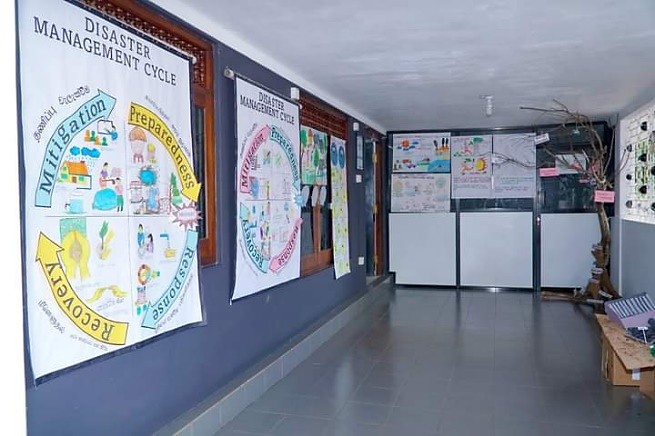
Empowering Change: The 3Zero House in Sri Lanka

The 3Zero House is Acted Sri Lanka’s hub for learning, innovation, and empowerment, championing the belief that youth should lead the way as agents of economic and social transformation. By uniting NGOs, government bodies, CBOs, SMEs, and most importantly, young changemakers, the 3Zero House is creating a collaborative movement rooted in its three core pillars: Zero Poverty, Zero Exclusion, and Zero Carbon.
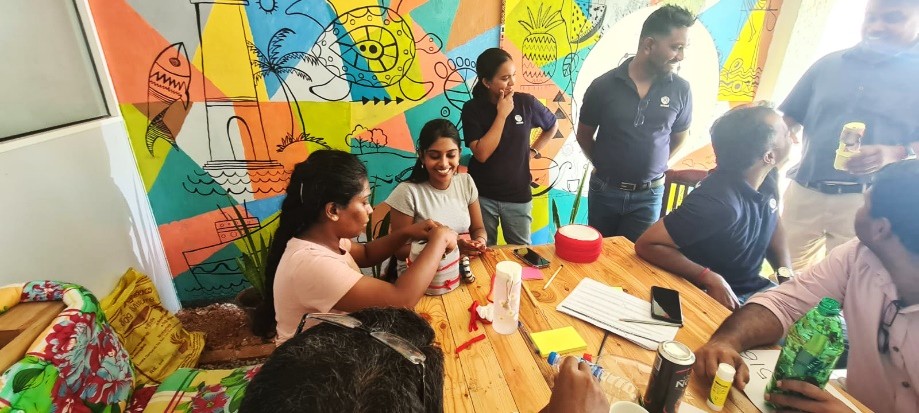
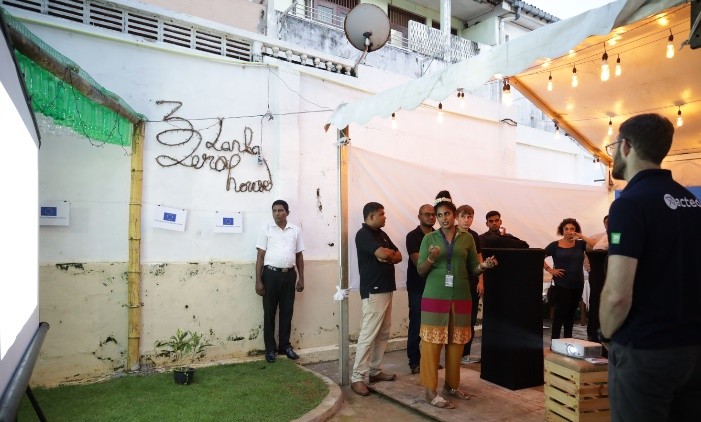
First 3Zero House launching in Colombo
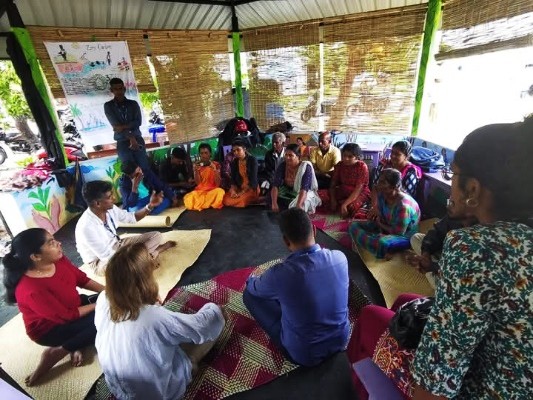
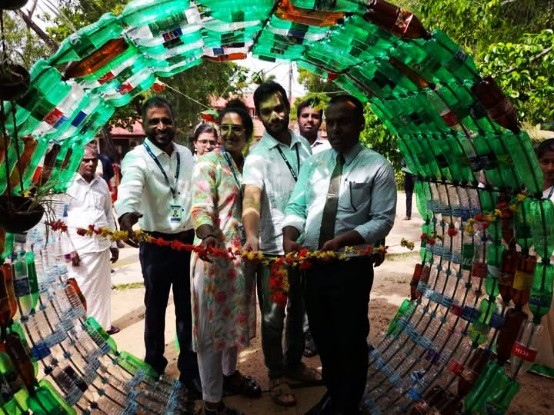
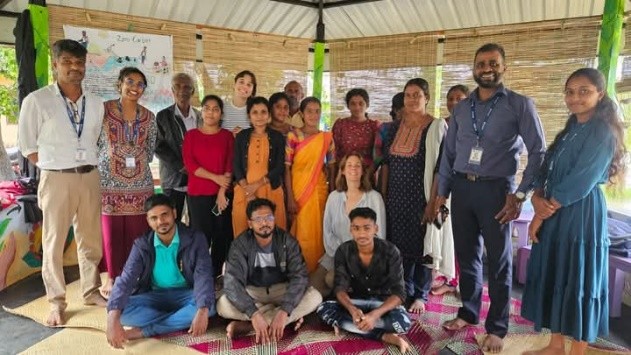
Launching of first 3Zero House Campus at the DS Office Vellawavelly. Batticaloa

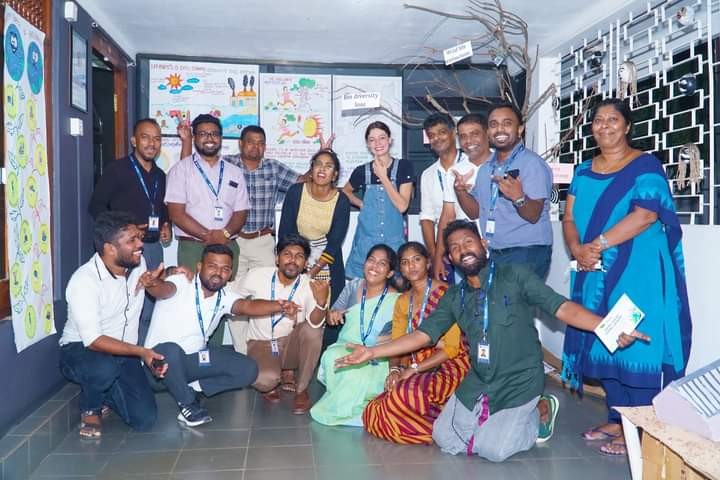
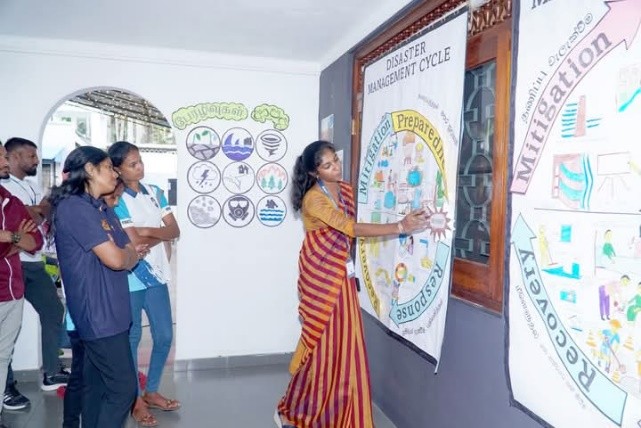
Second 3Zero House launching in Vavuniya
Incubating Solutions for a Circular Economy
As part of the PLASTICS project, the 3Zero House launched a call for innovative enterprises in May 2024 to tackle the gaps in the plastics value chain. The mission? To find scalable, locally-led solutions in areas like alternative packaging, plastic reuse, and strengthening the 3R (Reduce, Reuse, Recycle) approach.
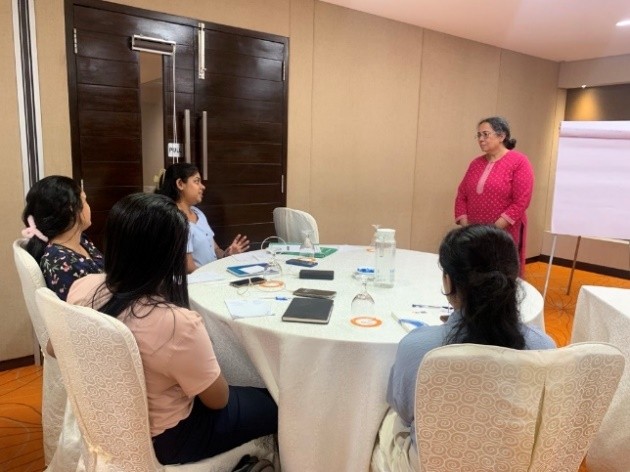
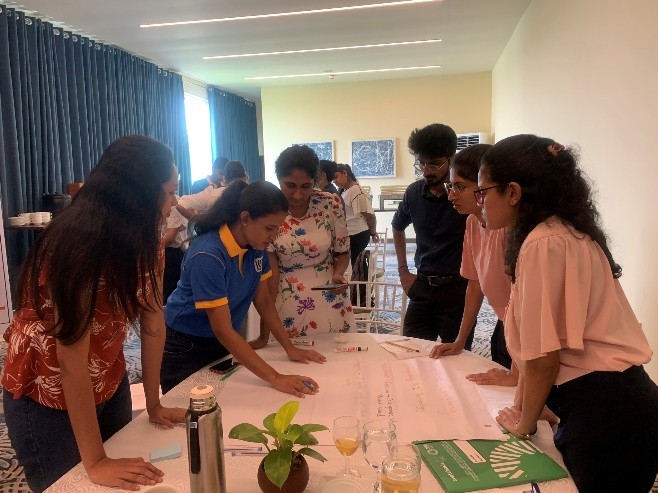
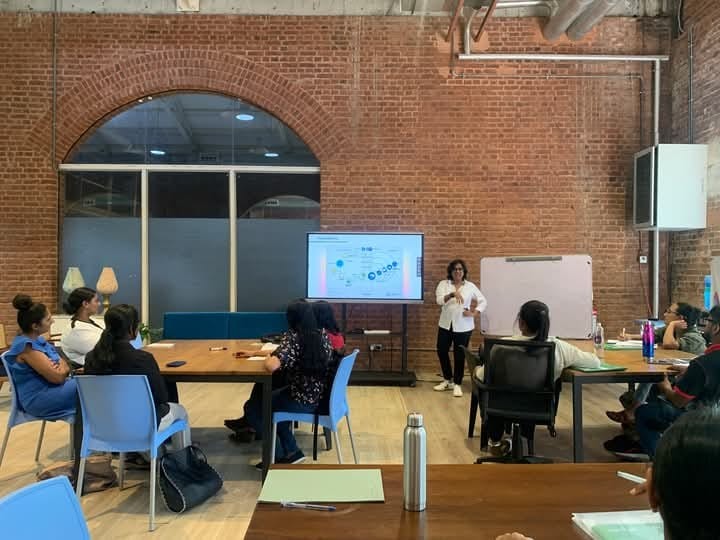
From dozens of inspiring ideas, 8 groundbreaking businesses were selected for a 4-month hybrid incubation programme designed in partnership with top ecosystem players like RTI International, AOD Design Academy, NIA, LIIN, GLX, Yarl IT, and more to foster the connection and the expertise sharing. The programme empowers these businesses through capacity-building and tailored training to match their specific needs.
Interesting Facts
- 💡 None of these businesses are directly in the plastics value chain—but they are tackling the challenges creatively!
- 💪 6 of them are women-led companies.
- 🧪 2 projects in alternative packaging are in the prototype stage.
- 👗 3 projects are shaping a sustainable future in the fashion industry.
- 🏗 1 project is rethinking materials in the building industry.
- 🛋 1 project is innovating in the furniture and supply industry.
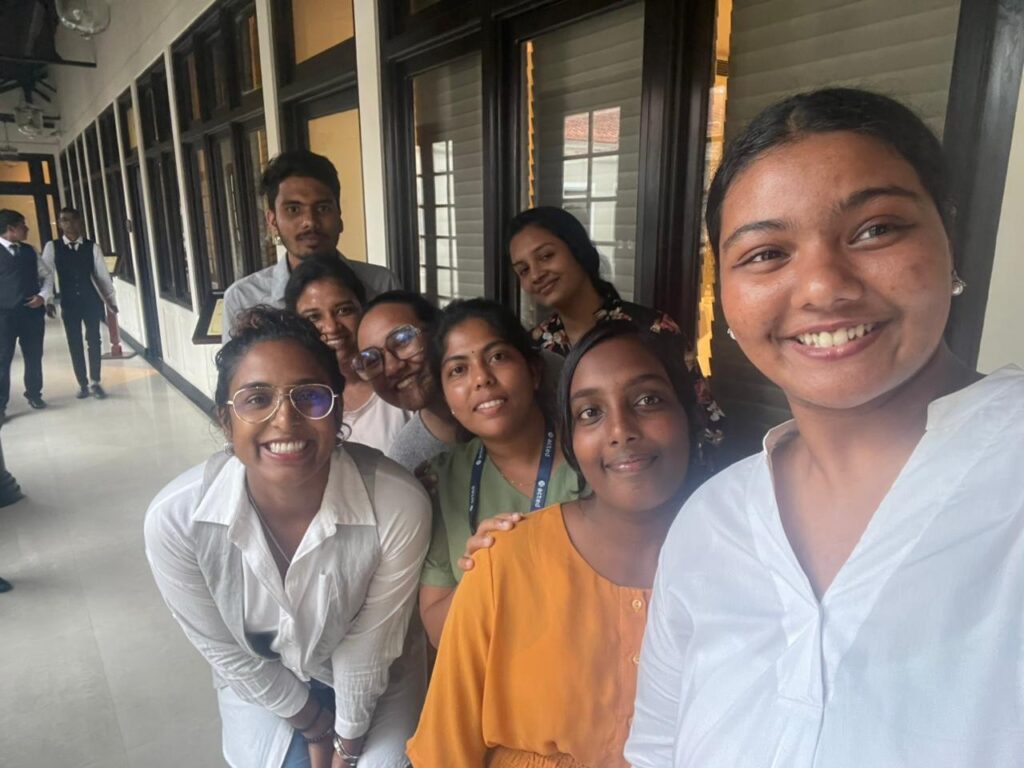
Meet the Cohort
This initiative proves that young entrepreneurs have the power to reshape industries and create sustainable change.
- ALKE is set on a mission to reduce waste one item at a time with beautifully crafted pieces of art jewellery. The studio processes household waste such as single-use PET bottles, polythene bags, and soda cans, collected directly from our communities intercepted before they are sentenced to landfills.
- Ample is a sustainable fashion brand catering to women’s clothing, In the age range of 18-55. Exclusively unique designs in the categories of formal, casual and party wear for a very affordable price range and quality materials, which is trending in the modern world of fashion. Specifically capturing the plus size requirements as well.
- Solocycle is committed to reducing plastic waste from shoe soles by recycling them into high-quality, affordable slippers, thereby tackling the plastic pollution generated by fast fashion.
- Invent of Minds is a company that has developed a business focused on providing office supplies made from bamboo as an alternative to single-use plastic items.
- Star Mushrooms is a pioneering women-led family business dedicated to the cultivation, sourcing, and distribution of mushrooms. Currently, they are advancing research on mycelium packaging— made of the root structure of mushrooms and sandusts.
- Teshvo is currently developing a biodegradable thin film made of seaweed and plant starch to replace single-use plastic thin film.
- Shells Ceylon is an eco-friendly cutlery & waffle cones production company that aims at reducing single-used and plastic cutlery, cups and bowls by using edible products.
- AGC Innovate is a company that produces “Plastic Modified Asphalt Concrete (PMAC),” which converts non-recyclable waste plastic (such as shopping bags, biscuit wrappers, and chocolate wrappers that are often neglected by public and private sectors) into an industrial raw material for use in asphalt paving for roads, highways, car parks, and yards.
Stay tuned for more updates as we take steps toward a plastic-free, sustainable future!

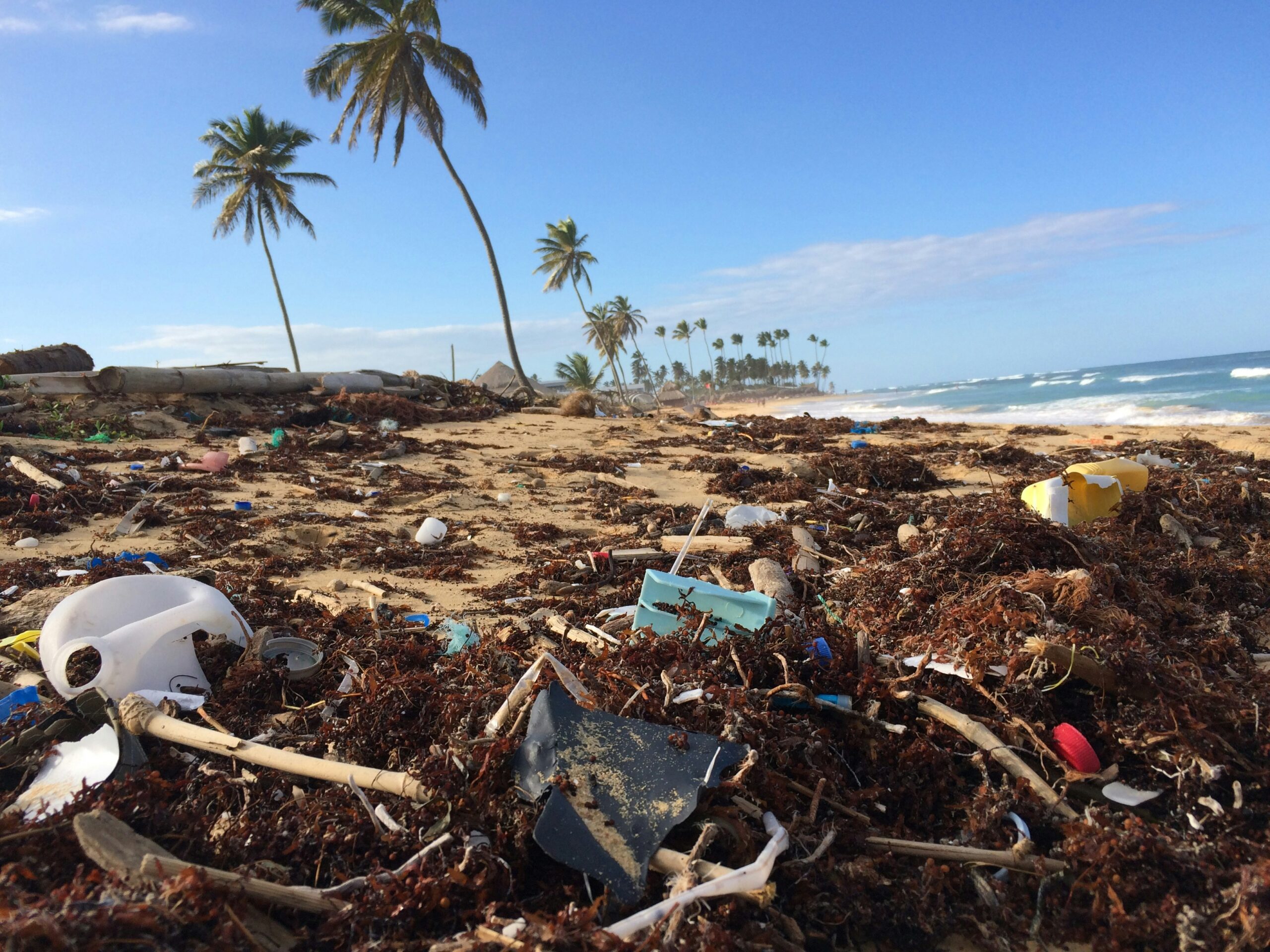
Shaping a Greener Future: The PLASTICS Project in Sri Lanka

PLASTICS: Promoting Long-term Approaches for a Sustainable, Transformative and Inclusive Circular Economy in Sri Lanka
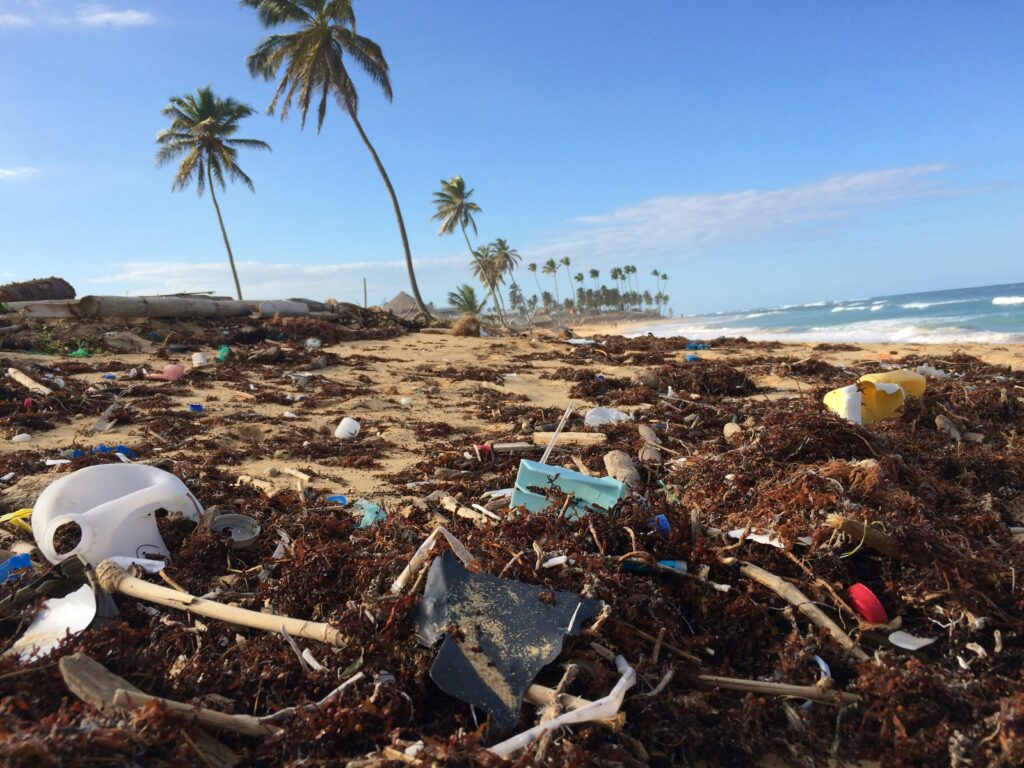
Over 500,000 tonnes of plastic is imported to Sri Lanka annually, and it is estimated that 1.59 million tonnes of plastic waste overall is mismanaged. The linear take-make-dispose model of the plastic value and supply chain (V/SC) in Sri Lanka fails to capture the economic benefits of a more circular approach.
Over 48 months, the PLASTICS project funded by the European Unions, aims to improve economic development within the plastic V/SC through Small, Medium Enterprises’ (SMEs) resource efficiency, circular innovation, green finance, and sustainable waste management (SWM) frameworks in Western Province.
150 SMEs, 10 entrepreneurs, 50 Business Development Service providers, 10 financial and government institutions, and private sector actors will be supported to promote a cohesive environment for green business development. Businesses, particularly women-led ones, will be supported to boost value addition, improving overall competitiveness and cost-efficiency.
Objective
The objective of the project is to facilitate sustainable and innovative plastic minimisation and management in Sri Lanka by integrating SMEs in greener value and supply chains, thereby contributing to economic prosperity and environmental sustainability.
Planned Outputs
- SMEs in the plastic V/SC adopt circular economy strategies.
- Innovative, circular economy approaches are streamlined throughout the plastic V/SC.
- Access to finance and green investments are increased to scale up green economic initiatives, especially among SMEs.
- The traceability, transparency and compliance to plastic sustainable waste management are strengthened through public private dialogue, collaboration and monitoring.



Boosting SME Growth with Business Plan Training

The Industrial Services Bureau (ISB) has successfully concluded seven comprehensive 5-day Business Plan Preparation Training programs for small and medium enterprises (SMEs) engaged in the plastic recycling value chain in Western Province of Sri Lanka. These programs, conducted under the EU-funded PLASTICS project, have led to the completion of 113 individual business plans by the end of November 2024, with an additional eight plans currently in progress. Another training session is planned for 15-20 SMEs later in December 2024.
The main goal of this initiative is to help project beneficiaries create strong 5-year business plans. These plans will focus on key areas like using resources efficiently, adopting cleaner production methods, promoting sustainable consumption, encouraging green investments, and ensuring social inclusion and gender equality. By taking this well-rounded approach, the initiative aims to support the circular economy by improving how plastics are collected, recycled, manufactured, and marketed.


Core Components of the Training
Participants learned to develop the following critical elements of a business plan:
- Vision, mission, and objectives.
- Marketing, production, and human resource plans.
- Financial planning, including ratio analysis.
This initiative not only supports business growth but also provides foundational documents for other project activities, such as accessing green finance, RECP (Resource Efficiency and Cleaner Production) assessments, QEMS (Quick Environmental Management System) certification, ISO 14001 compliance, and participation in buyer-seller forums.
Impact of the Training
The training had a significant impact on SMEs by providing them with practical knowledge to make structural improvements in their businesses. Participants also gained a clear understanding of profit and loss analysis, which has helped them make more informed decisions. As a result of the training, many SMEs have successfully secured bank loans and in-kind grant assistance using the business plans they developed.
The training sessions were held in Gampaha, Colombo, and Kalutara districts to make them easily accessible to participants. Expert trainers and business development specialists from ISB led the sessions, with ACTED staff managing the organisation and logistics.
This initiative marks a significant turning point for many SMEs, steering them toward sustainable, profitable operations aligned with circular economic principles.


Empowering SMEs for a Greener Future: Business Plan Training Under the PLASTICS Project


Small and medium enterprises (SMEs) play a critical role in Sri Lanka’s transition to a circular economy. Recognising this, the EU-funded PLASTICS Project has been equipping 152 SMEs in the plastic recycling value chain with vital business skills to drive sustainability and profitability.
In collaboration with the Industrial Services Bureau (ISB), the project has successfully conducted seven intensive 5-day Business Plan Preparation Training programmes in Sri Lanka’s Western Province. These sessions, held in Gampaha, Colombo, and Kalutara districts, have already resulted in the creation of 113 detailed business plans, with eight more in progress. An additional training session is scheduled for December 2024, targeting another 15-20 SMEs.
Building a Foundation for Success
The training sessions go beyond the basics of business planning, focusing on integrating principles of sustainability and innovation into long-term strategies. The business plans incorporate:
- Vision, Mission, and Objectives to guide organisational growth.
- Marketing, Production, and Human Resource Plans to streamline operations.
- Financial Projections and Ratio Analysis for informed decision-making.
Participants were trained to include critical elements such as resource efficiency, cleaner production, green investments, and social and gender inclusion—aligning their businesses with the circular economy.
Turning Plans into Progress
The impact of these training programmes has been transformative for many SMEs:
- Structural Improvements: Participants gained practical knowledge to refine operations and enhance productivity.
- Better Financial Insights: SMEs now understand profit and loss analysis, enabling smarter investments.
- Access to Funding: Several businesses have already secured bank loans and grants by presenting their professionally crafted business plans.
These plans also provide a gateway for SMEs to access other opportunities offered by the PLASTICS Project, including:
- Green financing and RECP (Resource Efficiency and Cleaner Production) assessments.
- QEMS (Quick Environmental Management System) certification and ISO 14001 compliance.
- Participation in buyer-seller forums, fostering valuable market connections.
A Collaborative Effort
The success of these training sessions is a testament to the collaborative approach of ISB, ACTED, and the PLASTICS Project. Experienced trainers and business development experts led the sessions, supported by ACTED staff who ensured smooth logistics and organisation.
A Path Towards Sustainability
This initiative has become a turning point for many SMEs, empowering them to adopt sustainable practices, improve operations, and thrive in a competitive market. By integrating circular economy principles into their strategies, these businesses are not only reducing environmental impact but also strengthening their resilience and profitability. The PLASTICS Project remains committed to fostering sustainable SME development, one business plan at a time.


Interactive Wetland Experience for the Next Generation
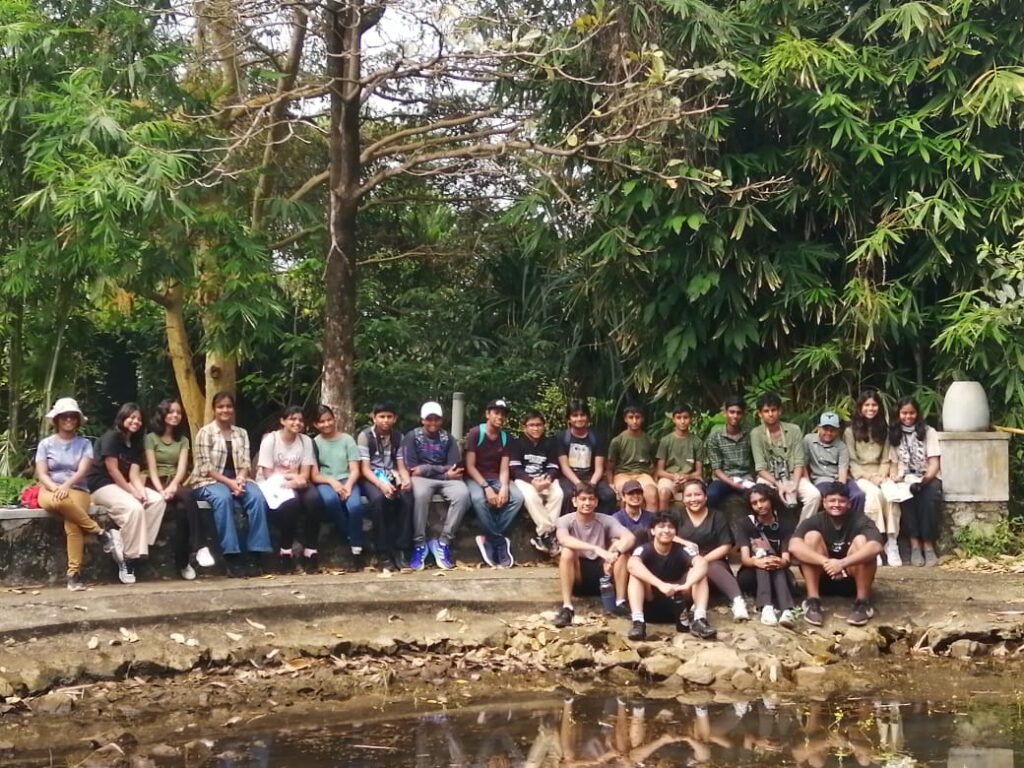
In collaboration with Dole Lanka and Cargills Ceylon PLC, BSL organized an educational Wetland Walk at Diyasaru Park for students of Stafford International School on 5th February 2025. The walk provided young minds with the opportunity to explore the biodiversity of wetlands, observe their ecological significance, and understand their role in climate resilience and water purification. This immersive experience allowed students to observe firsthand the rich biodiversity of wetlands and understand their critical functions, such as acting as natural water purifiers and buffers against climate impacts.
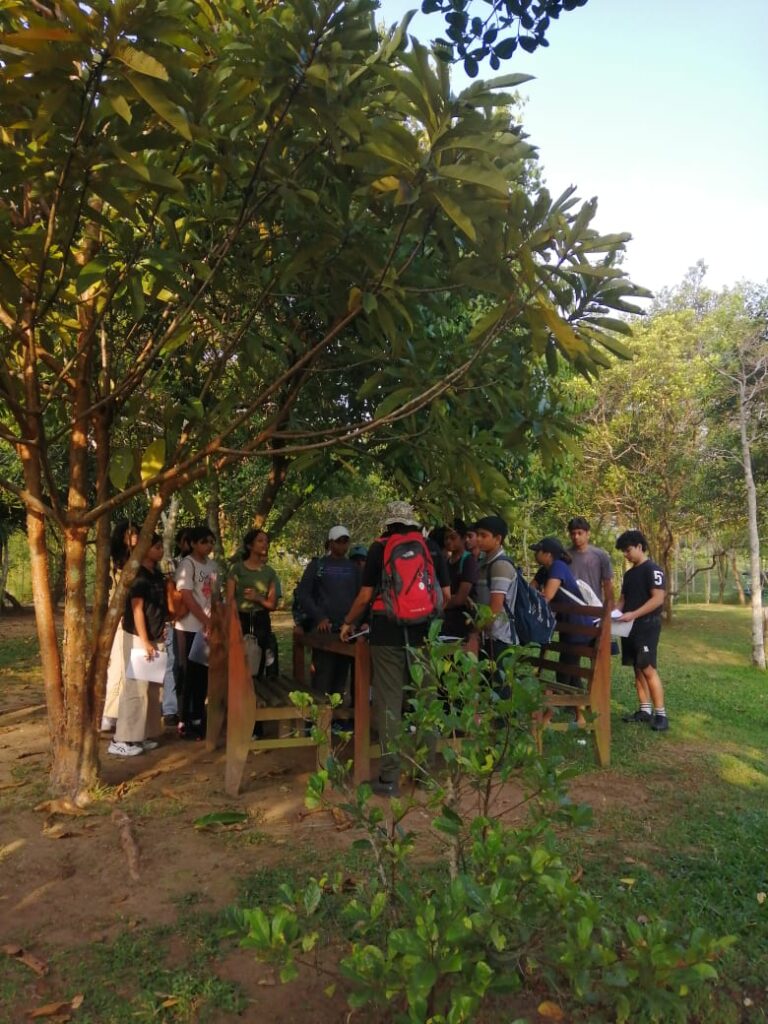
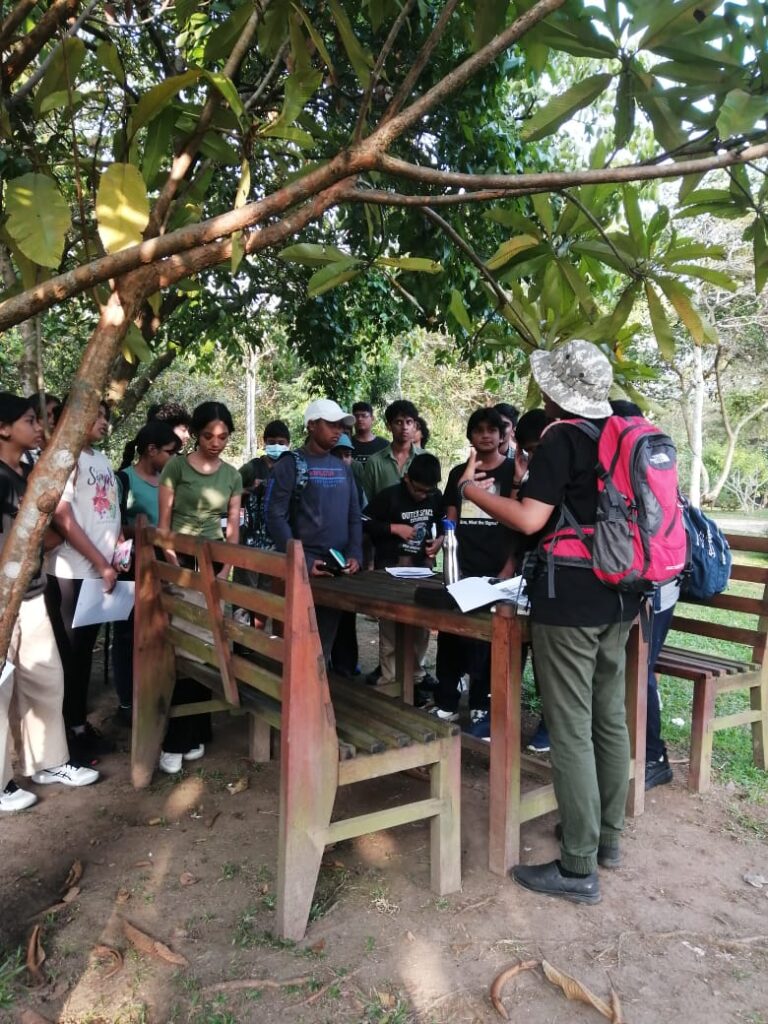

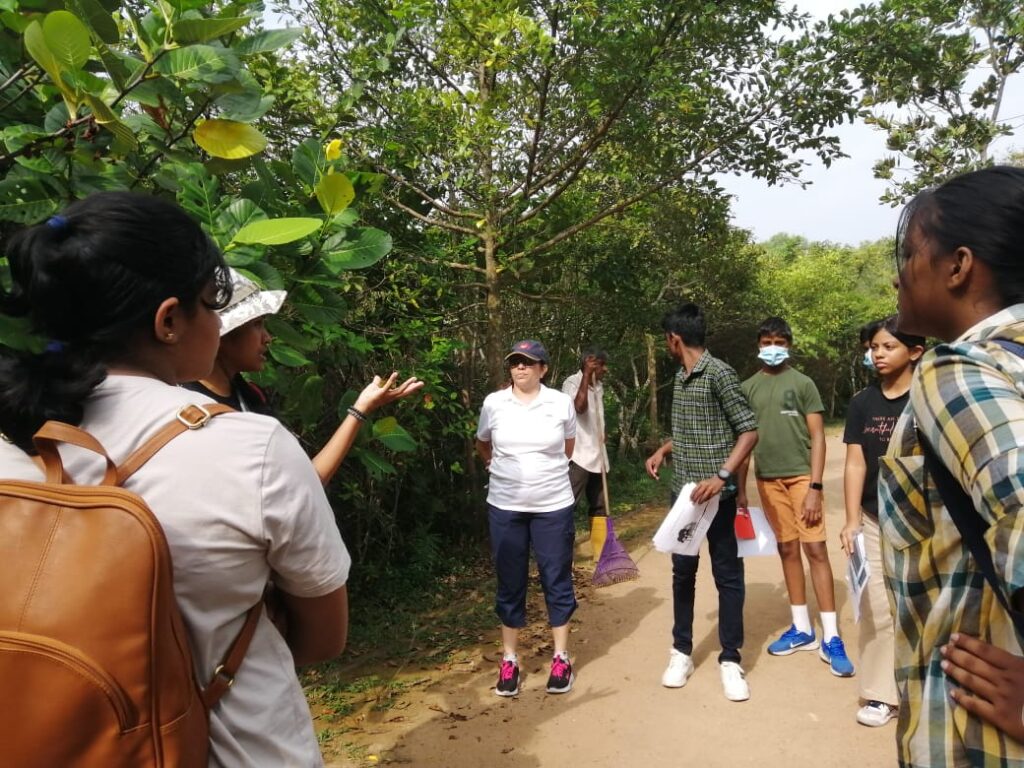
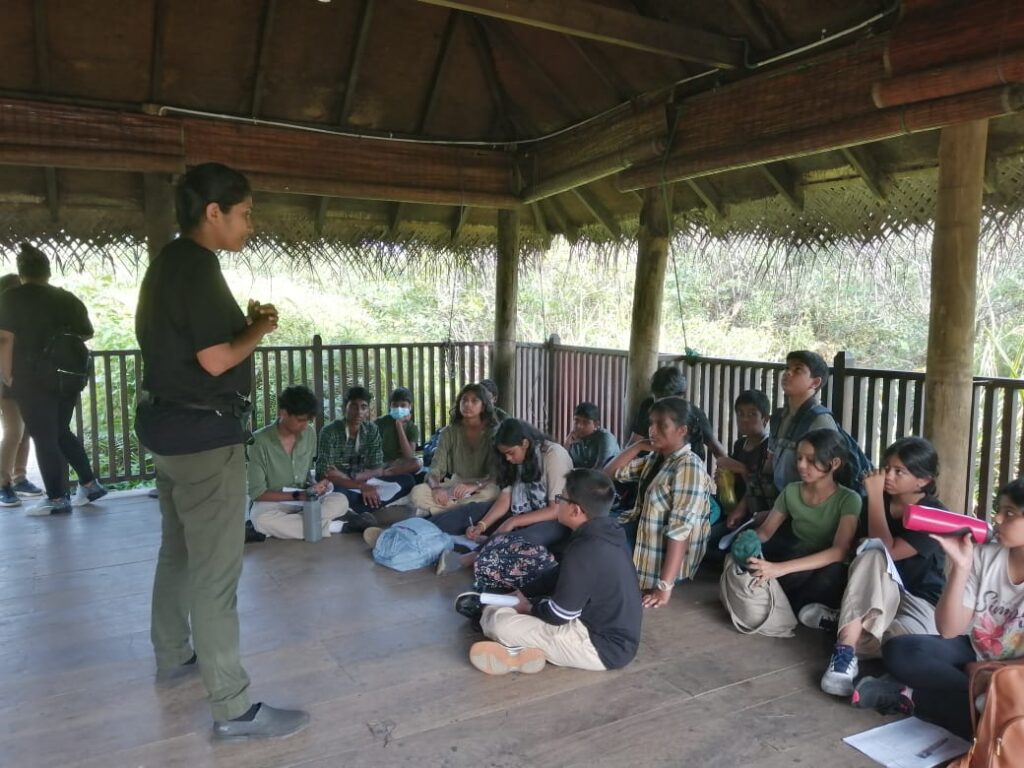
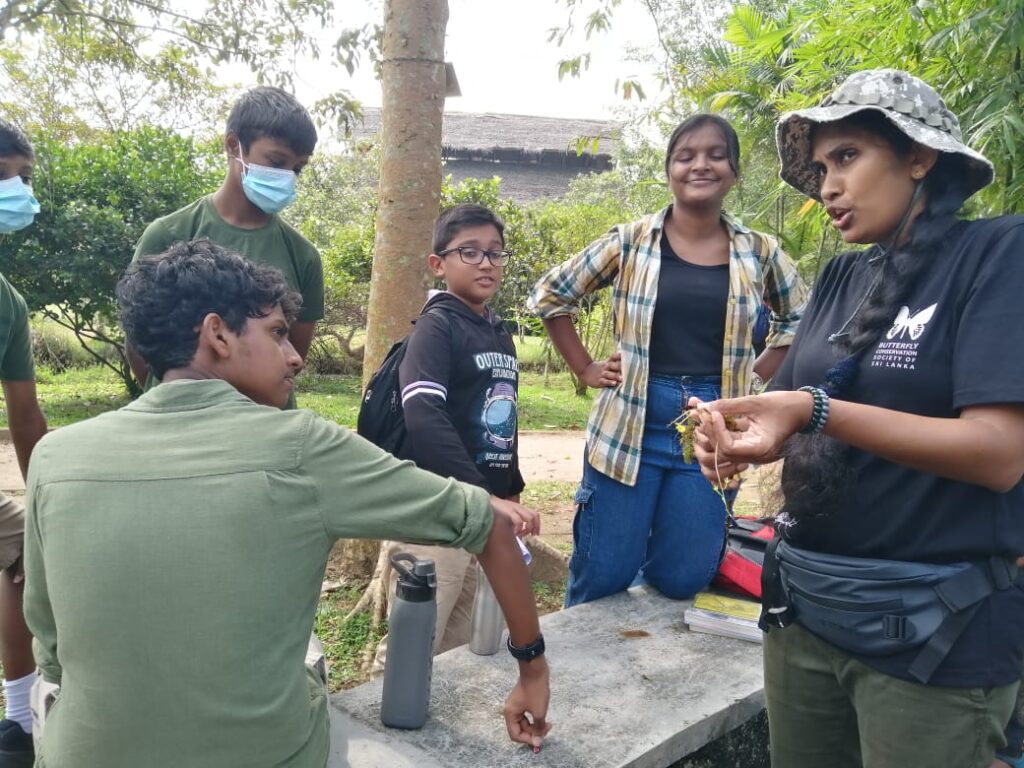
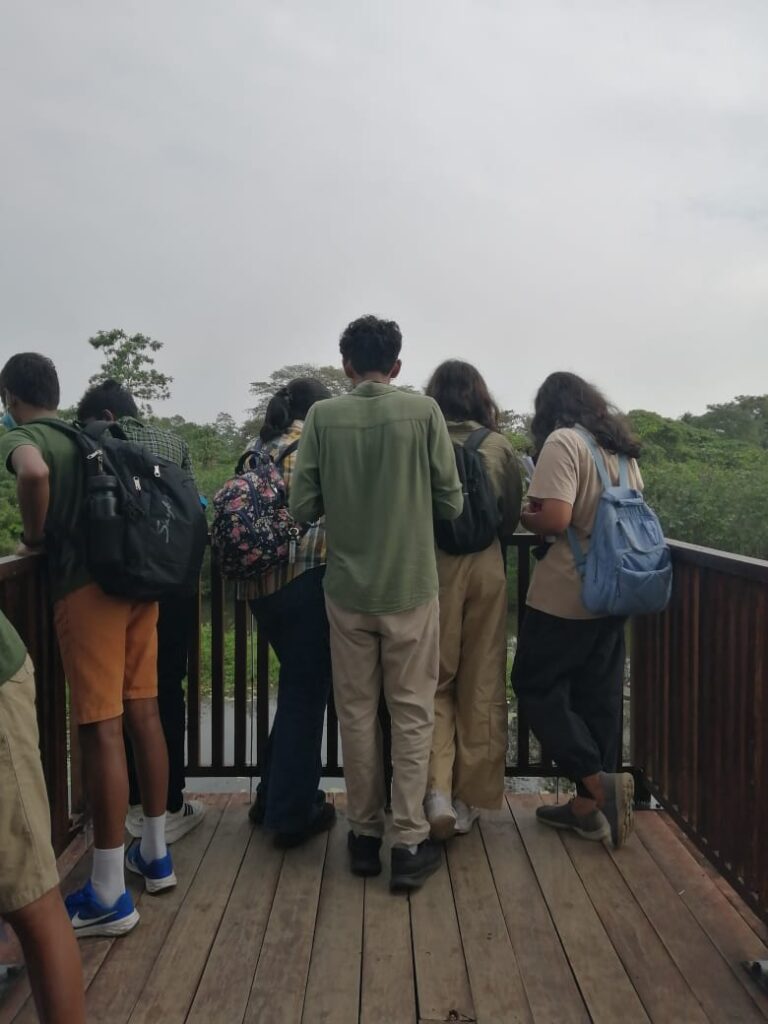
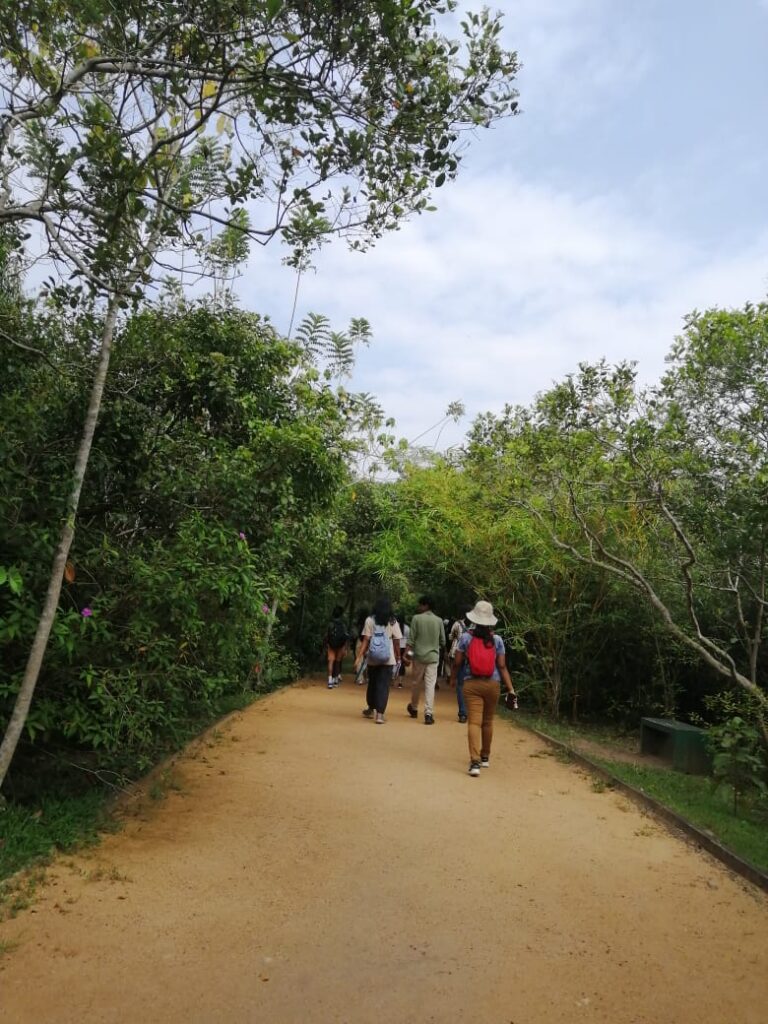
The students were introduced to the concept of wetlands as ‘nature’s kidneys’, filtering pollutants and supporting a diverse range of species. Through interactive discussions, they learned about the threats wetlands face—including habitat destruction and pollution—and the importance of conservation efforts. The initiative underscored the critical role that youth play in safeguarding natural ecosystems for future generations. By engaging young minds, the initiative aimed to cultivate future stewards of environmental conservation.
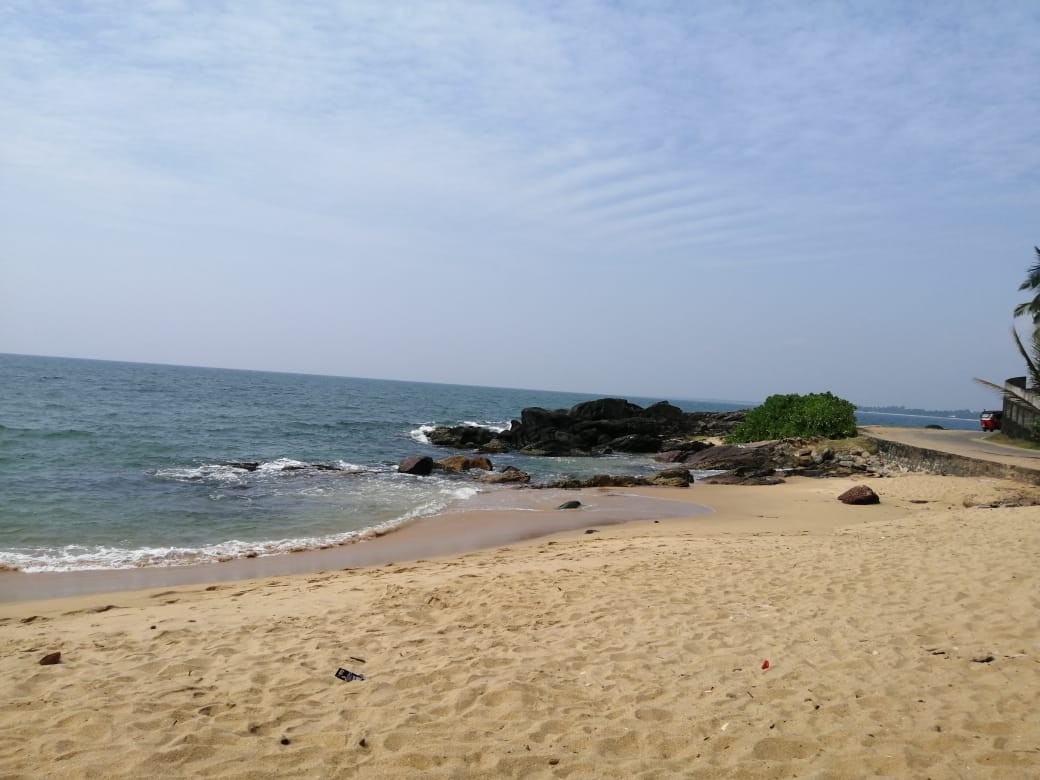
Life to Our Beaches Fuels the Clean Sri Lanka Campaign
Sri Lanka’s picturesque coastline is under threat from marine pollution and mismanaged waste, challenges that not only harm the environment but also undermine the country’s tourism and economic potential. In response, the Life to Our Beaches Project is making a tangible impact, creating cleaner, more resilient coastal areas while offering significant opportunities for the private sector to contribute to a sustainable future.
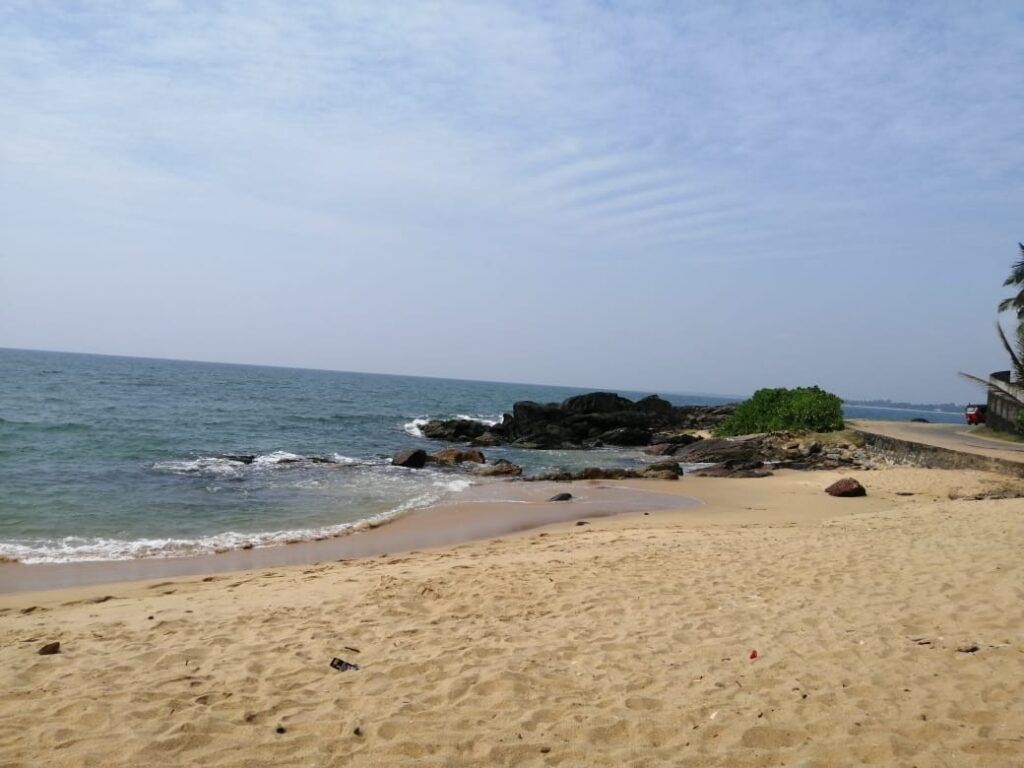
Cleaning Up for a Clean Sri Lanka
The Clean Sri Lanka campaign is now setting the national agenda for environmental stewardship, and the Life to Our Beaches Project is a shining example of such a vision in action. Two pilot projects, located at Kalutara’s Calido Beach and Beruwala’s Kechchimale Beach Park, have demonstrated how targeted interventions can restore the natural beauty of our coastal areas. At Calido Beach, a 500-meter stretch that was heavily polluted by waste from the Kalu River, concerted cleanup efforts led by a partnership between the Ministry of Environment, Biodiversity Sri Lanka (BSL), and Commercial Bank have resulted in the removal of over 1,586 kilograms of waste. Similarly, the Kechchimale Beach Park project in Beruwala, supported by the Bank of Ceylon, tackled pollution stemming from plastic waste and sewage from the local fishery harbor, removing 169 kilograms of debris.
Beyond environmental cleanup, these initiatives have also provided socio-economic benefits. Beach caretakers, who are predominantly from economically disadvantaged communities, have earned supplementary income through the recycling of waste. For example, the caretaker at Calido Beach generated earnings of LKR 35,585 through recyclable sales. Such outcomes not only contribute to a cleaner environment but also enhance livelihoods, underscoring the holistic benefits of sustainable beach management.
Opportunities for the Private Sector
For private sector players, the Life to Our Beaches Project represents more than just a charitable endeavor—it is a strategic opportunity to drive corporate social responsibility (CSR) initiatives, boost brand reputation, and contribute to the national Clean Sri Lanka campaign. Companies that invest in or sponsor these projects can benefit from enhanced visibility, positive community engagement, and alignment with global sustainability trends.
Leading financial institutions like Commercial Bank and the Bank of Ceylon have already set a precedent by supporting these initiatives. Their involvement demonstrates how aligning business strategies with environmental goals not only fulfills regulatory and CSR mandates but also opens up new avenues for innovation and growth. In today’s market, consumers and investors increasingly favor companies that are committed to environmental stewardship, and involvement in such projects can significantly enhance corporate image and competitiveness.

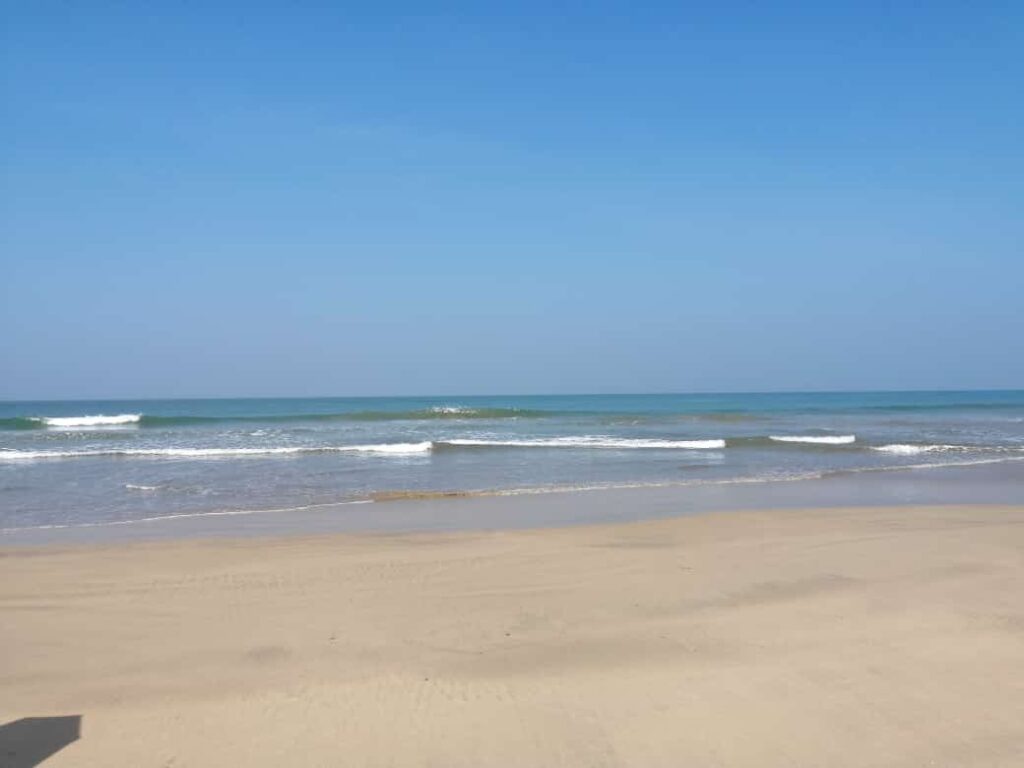
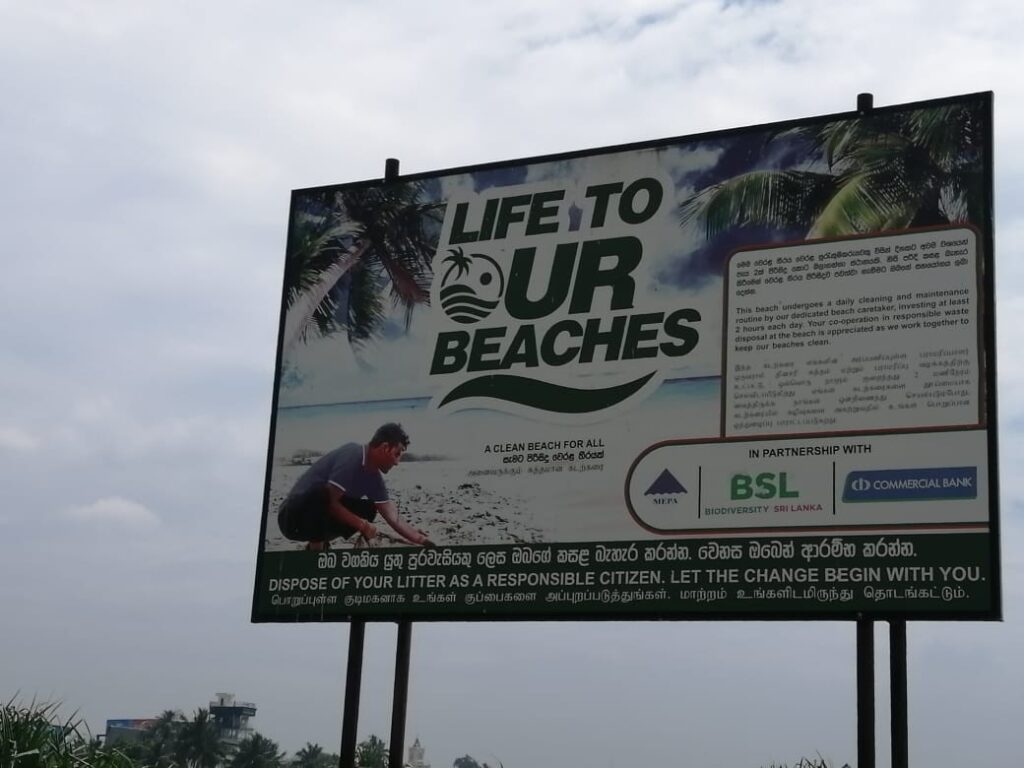
Scaling Up and Future Prospects
Building on the success of the pilot projects, the Life to Our Beaches Project is set to expand to new locations, including Kayankerni Beach in Batticaloa, Eastern Province. This expansion aims to replicate the successes seen at Calido Beach and Kechchimale Beach Park while addressing unique challenges specific to each coastal region. The new project in Batticaloa will focus on reducing plastic pollution, improving waste management systems, and empowering local communities through sustainable beach stewardship.
Moreover, future efforts will include continuous training for beach caretakers to enhance their operational efficiency, structured recruitment and retention strategies to maintain long-term commitment, and the launch of media campaigns to boost public awareness and attract further corporate support. By scaling up these initiatives, the programme aims to create a network of clean and sustainable beaches across Sri Lanka, contributing significantly to the Clean Sri Lanka campaign and setting a benchmark for environmental responsibility in the private sector.
A Call to Action for Sustainable Impact
The transformation of Sri Lanka’s coastlines through the Life to Our Beaches Project exemplifies how coordinated efforts between government, NGOs, and the private sector can lead to measurable environmental and socio-economic improvements. For the private sector, this initiative offers a unique platform to drive innovation in waste management, foster sustainable business practices, and demonstrate a commitment to the nation’s environmental goals.
As Sri Lanka strives towards a cleaner, more sustainable future, the active participation of private companies is crucial. By investing in these projects, businesses can not only help protect one of the country’s most valuable natural assets but also contribute to the broader national agenda of a Clean Sri Lanka. In doing so, they will not only reap economic and reputational benefits but also play a pivotal role in shaping a greener, more resilient future for all.
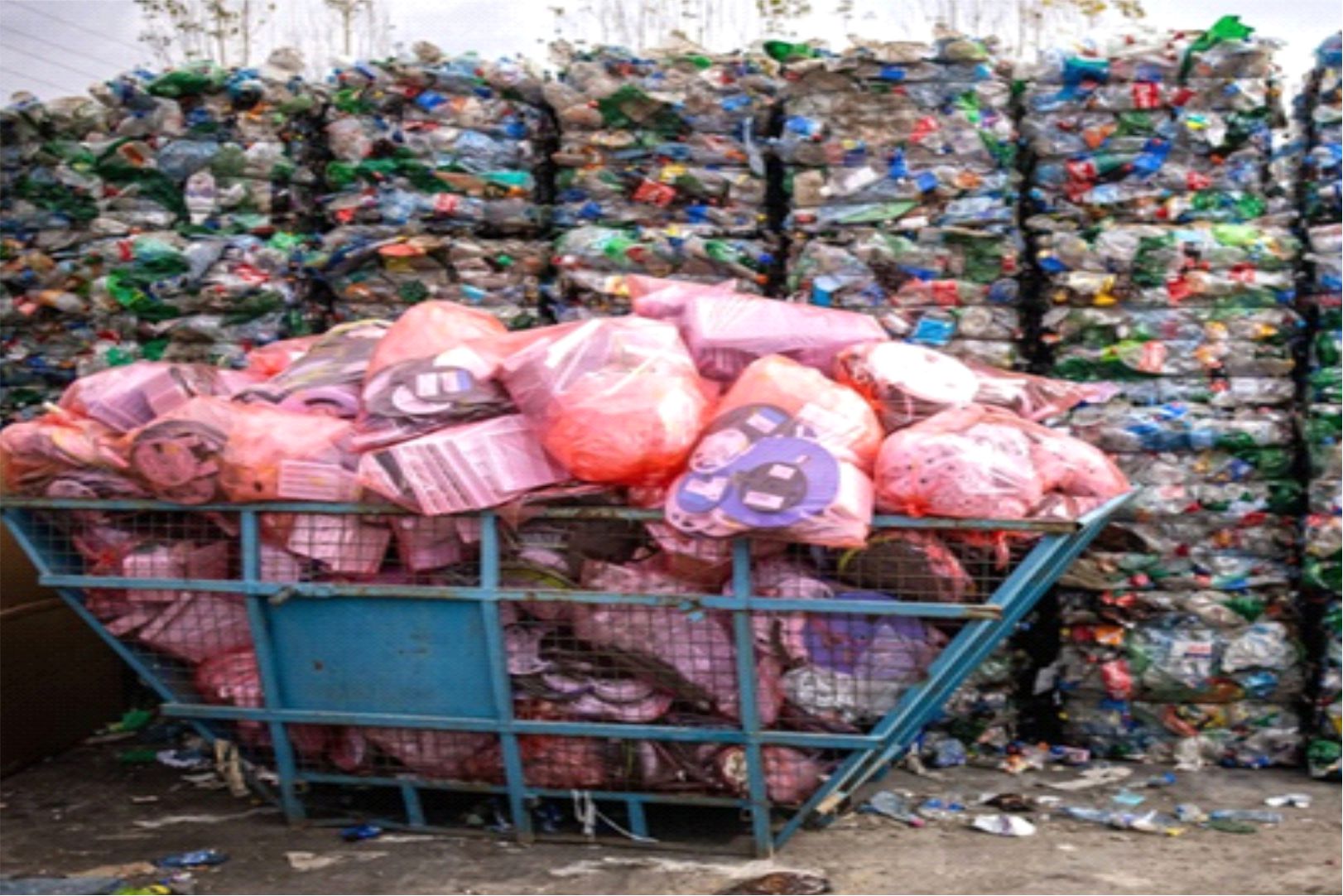
The PLASTICS Project and Sri Lanka’s Sustainable Future

Biodiversity Sri Lanka (BSL), in partnership with ACTED, the Industrial Services Bureau (ISB), STENUM Asia, and The Energy and Resources Institute (TERI) of India, is spearheading the Promoting Long-term Approaches for a Sustainable, Transformative, and Inclusive Circular Economy in Sri Lanka (PLASTICS) project. This 48-month initiative, funded by the European Union’s SWITCH-Asia program, is revolutionising the plastics value chain by integrating Small and Medium Enterprises (SMEs) into sustainable business practices that foster economic prosperity while tackling environmental challenges.
Rethinking Plastics: A National Priority
Sri Lanka imports over 500,000 metric tons of virgin plastic annually, contributing to nearly 1.59 million metric tons of mismanaged plastic waste each year. Recognising the urgency of addressing this crisis, the PLASTICS project focuses on transforming the plastic lifecycle across Sri Lanka’s Western Province. By targeting 150 SMEs engaged in plastic production, use, and recycling, the project enhances resource efficiency, promotes circular innovations, facilitates access to green finance, and strengthens waste management frameworks.
The project aligns closely with the Sri Lankan Government’s National Action Plan on Plastic Waste Management 2021–2030, which emphasszes the need to transition from a linear economy to a circular one. This shift is built on the principles of reducing, reusing, and recycling plastics while implementing Extended Producer Responsibility (EPR) schemes. As part of this effort, BSL is leading the expansion of the national plastics EPR Portal, which will play a crucial role in ensuring producer accountability and improving waste traceability through digital monitoring systems.



Milestones Achieved So Far
The PLASTICS Project Consortium has made significant progress in building momentum for a circular plastics economy. A key focus has been engaging a diverse group of stakeholders, including SMEs, entrepreneurs, policymakers, and financial institutions. Through workshops and training sessions, businesses have gained insights into sustainable practices, circular product design, and ways to integrate eco-friendly alternatives into their operations.
The project has also actively supported SMEs with critical asset provisions to strengthen their operational capabilities. Equipment such as baler machines for PET bottle compression, shredder machines for plastic flake production, and crusher machines for reducing plastic into fine granules have been distributed. This investment ensures that SMEs can process and manage plastic waste more effectively, fostering a sustainable business ecosystem.
Recognising the financial barriers that often hinder SMEs from adopting green practices, the project has introduced initiatives to improve access to green financing. A Digital Green Finance Toolkit has been developed to bridge knowledge gaps and empower financial institutions to support eco-friendly business models. Practitioner forums and collaborative platforms are building confidence among investors and businesses in financing sustainable plastic waste management solutions.
Public-private collaboration has been a cornerstone of the consortium’s approach. By fostering dialogue between industries, policymakers, and regulatory bodies, the PLASTICS Project Consortium has helped develop robust monitoring frameworks that support transparent and effective plastic waste management across industries. The innovative 3Zero House initiative, launched in Colombo, Vavuniya, and Batticaloa, serves as an incubator for entrepreneurs and businesses committed to sustainability. Through a dedicated incubation program, eight pioneering businesses – such as ALKE, Ample, Solocycle, and Teshvo – are developing scalable solutions in areas like alternative packaging, sustainable fashion, and eco-friendly building materials.
Why the Private Sector Should Get Involved
The PLASTICS project is creating new business opportunities while addressing environmental challenges. Companies that adopt circular economy principles gain access to innovation and increased competitiveness in both local and international markets. Businesses integrating sustainable product design and packaging will be better positioned to comply with upcoming regulations and attract environmentally conscious consumers.
Furthermore, the expansion of green finance accessibility presents an opportunity for companies to invest in sustainable technologies and business models. Financial incentives and tailored funding solutions are being introduced to help SMEs transition toward low-impact manufacturing processes, offering a major advantage for businesses looking to future-proof their operations against regulatory changes while reducing long-term costs through resource efficiency.
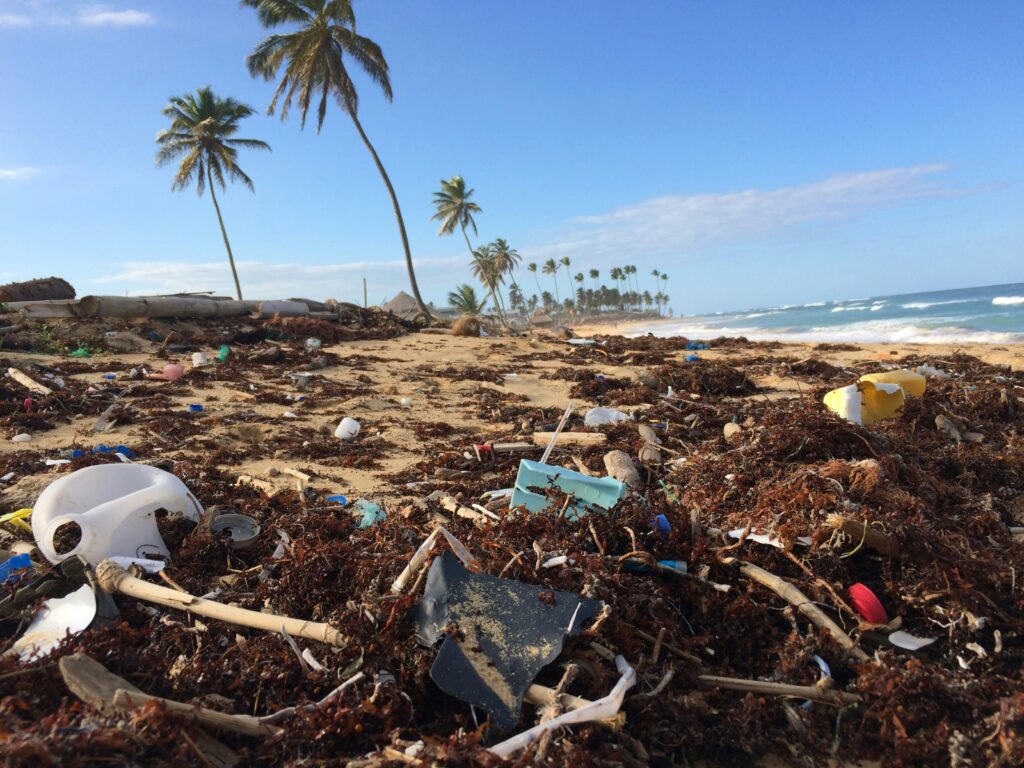
Scaling Up for the Future
Building on its success, the PLASTICS project is set to scale up circular innovations by supporting SMEs in adopting advanced technologies that minimize plastic waste and promote the use of sustainable materials. The consortium is actively working alongside the Central Bank of Sri Lanka and the EU Delegation to Sri Lanka and the Maldives to promote green finance frameworks that align with global sustainability goals. Recent strategic briefings on the delivery of green financial services have emphasized the importance of integrating environmental risk assessments into financial processes, reinforcing the consortium’s efforts in advancing circular economy solutions and influencing national financial policies.
As Sri Lanka deepens its commitment to a circular economy, policy frameworks must evolve to support long-term sustainability. The consortium will continue working closely with policymakers to advocate for stronger regulations that facilitate EPR schemes, incentivize sustainable product design, and promote responsible plastic use across industries. Community engagement and awareness campaigns will also be vital in educating consumers about the importance of reducing plastic consumption and supporting sustainable alternatives.
Shaping the Future of Plastics in Sri Lanka
The work of the PLASTICS Project Consortium stands as a testament to the power of BSL’s leadership in promoting collaborative innovation and driving corporate sustainability as well as environmental responsibility. By fostering innovation, strengthening policy frameworks, and equipping businesses with the tools to integrate circularity, the consortium—led by its esteemed partners—is setting the stage for a future where economic growth and environmental stewardship go hand in hand. This initiative not only addresses the pressing issue of plastic pollution but also creates new opportunities for sustainable development and positions the private sector as a leader in Sri Lanka’s green transformation.



